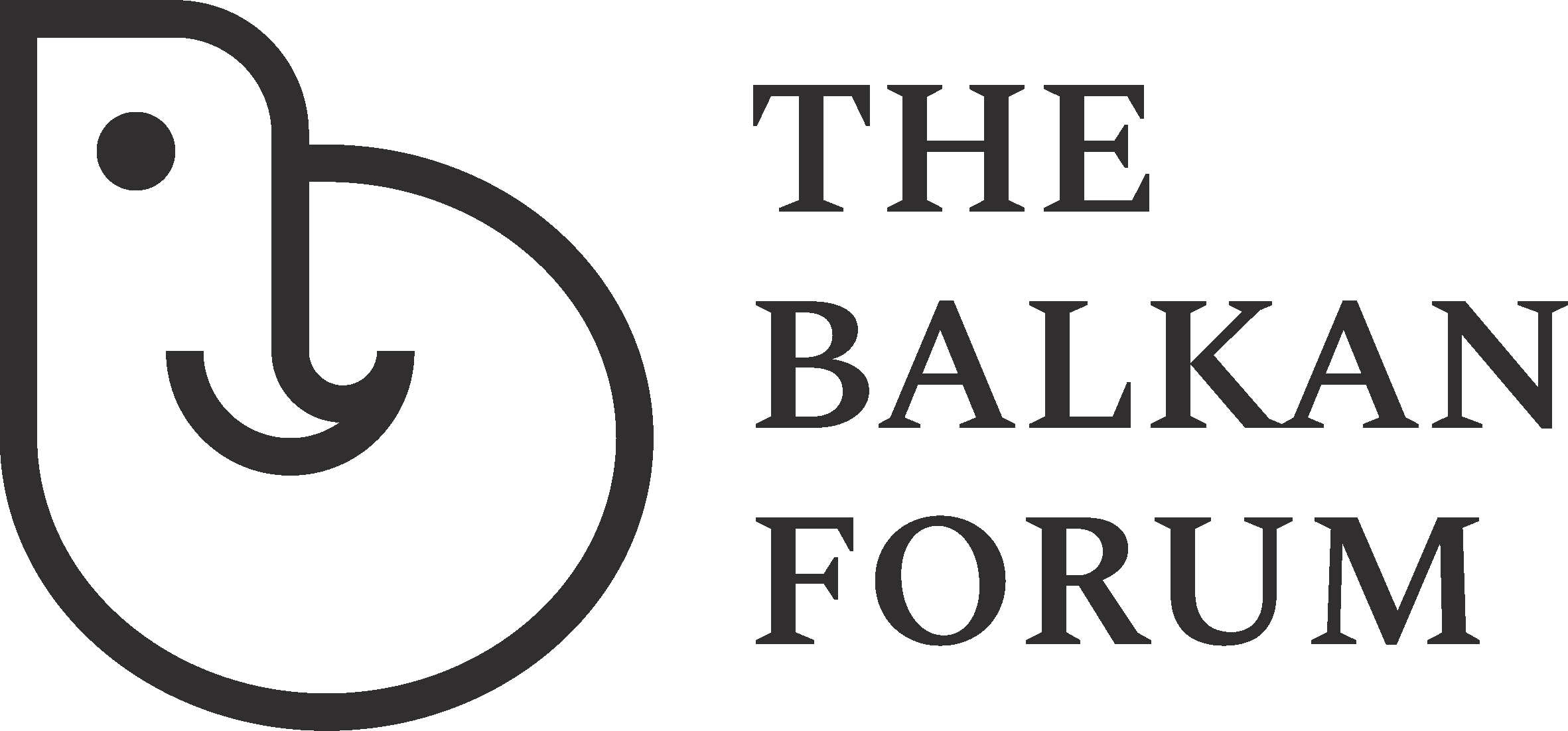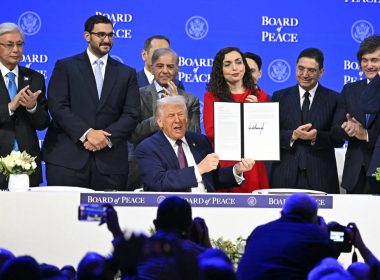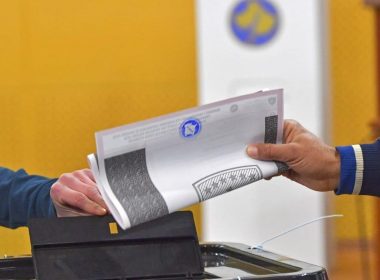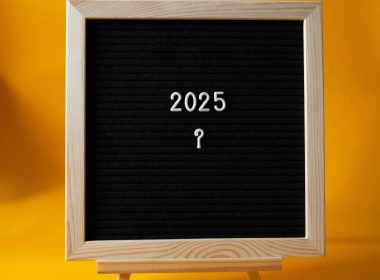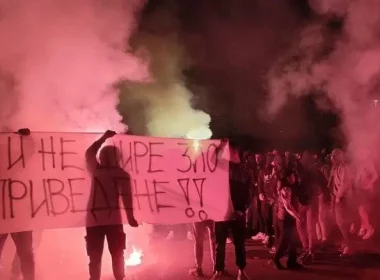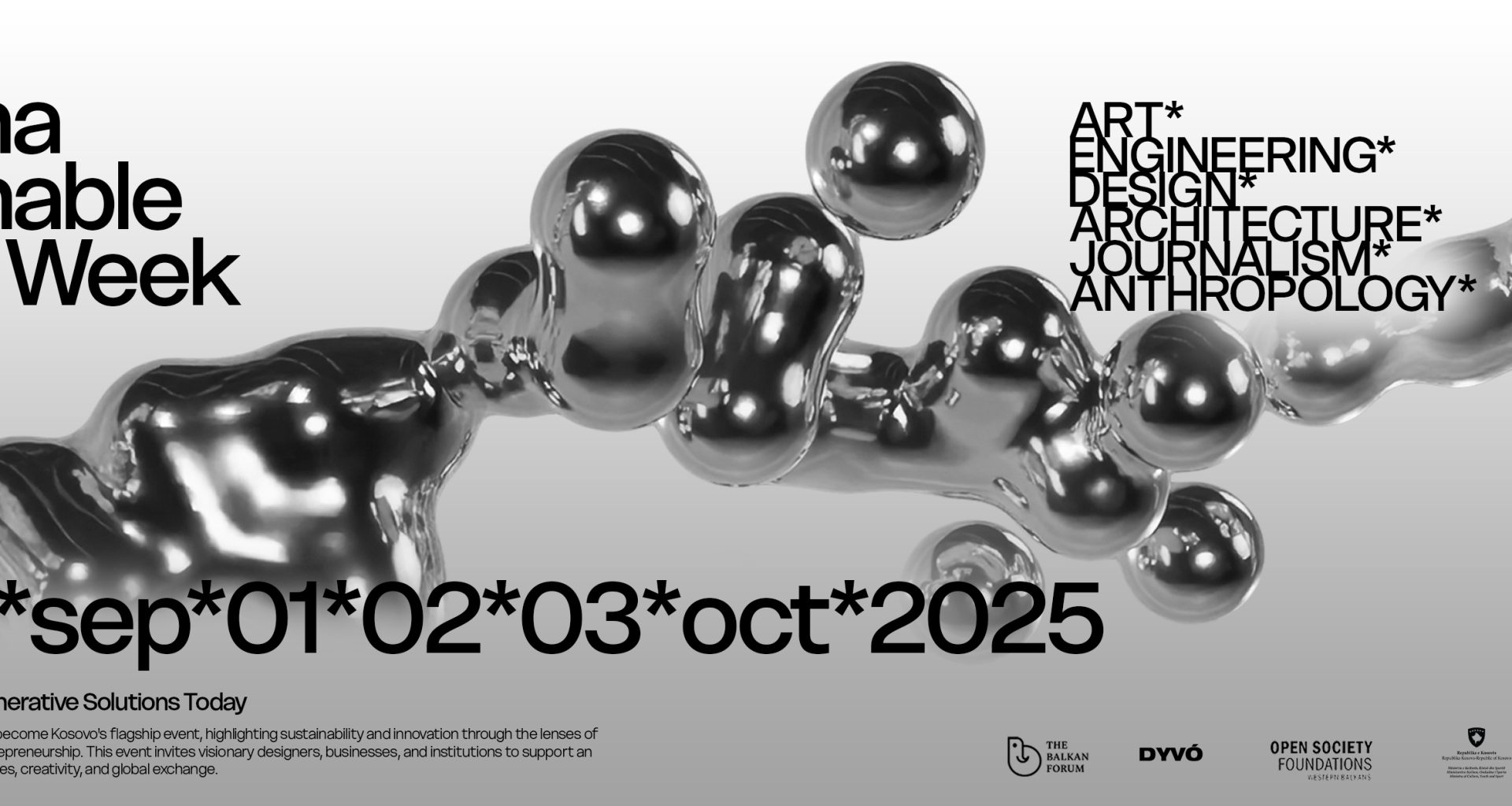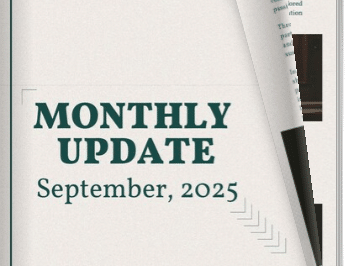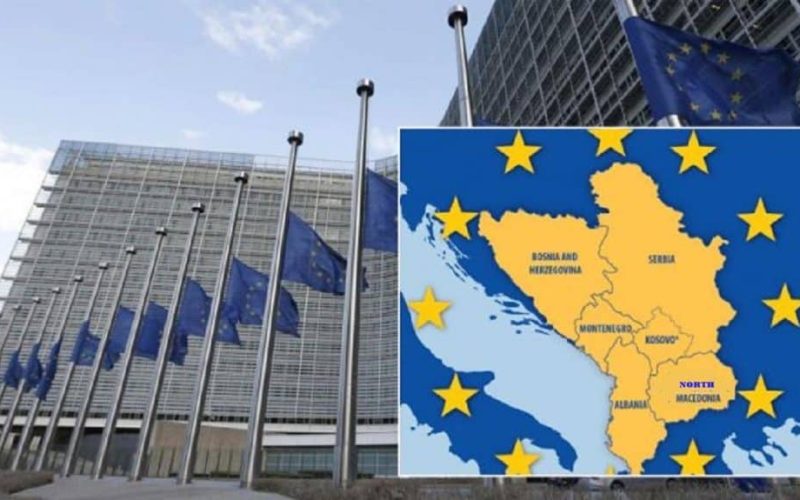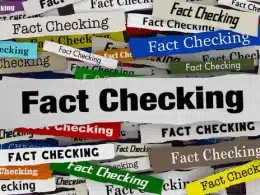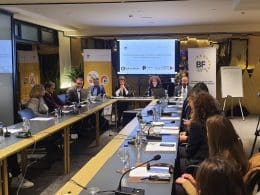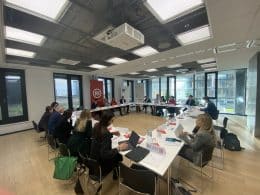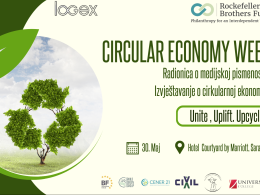Prishtina, 29 September – 3 October
From 29 September to 3 October 2025, Prishtina came alive with creativity, innovation, and community spirit during the Eco Festival – Prishtina Sustainable Design Week (PSDW). Organized by The Balkan Forum in collaboration with DYVO Lab within the ECO CHAMPIONS project and co-funded by the European Union, the festival marked a milestone for Kosovo’s environmental and creative community, transforming the capital into a dynamic hub of sustainability and intergenerational collaboration.
Building Bridges Between Generations for a Greener Future
The festival’s mission was clear: to connect generations and strengthen awareness and practical competences in sustainable waste management, circular design, and eco-innovation. As the first national edition of its kind, PSDW brought together culture, education, and civic engagement, proving that environmental awareness can be both lived and celebrated.
Across the week, 400+ participants including students, educators, designers, citizens, policy makers/local institutions, and diplomats joined workshops, public challenges, artistic interventions, and conferences. The festival’s inclusive and participatory approach enabled youth, senior citizens, and professionals to collaborate, share skills, and reimagine waste as a source of creativity and innovation. With amplification from partners including the French Institute, TOKA, YMCA, BONEVET, and ICK, PSDW became a citywide movement of awareness and pride.
By combining playful learning (Interactive Eco Quiz), practical civic action (Waste Sorting Challenge), and creative innovation (Upcycling Design Marathon), PSDW showed that sustainability thrives where knowledge meets participation, positioning Prishtina as a growing node in Europe’s network of sustainable design capitals.
From Awareness to Practice: A Behavioral Learning Framework
PSDW followed a three-phase learning arc aligned with the ECO CHAMPIONS approach:
- Before the Festival – Awareness & Intention: Open calls, social/press outreach, and NGO partnerships introduced citizens to sustainability, circularity, and civic responsibility, framing activities around accessible eco-principles.
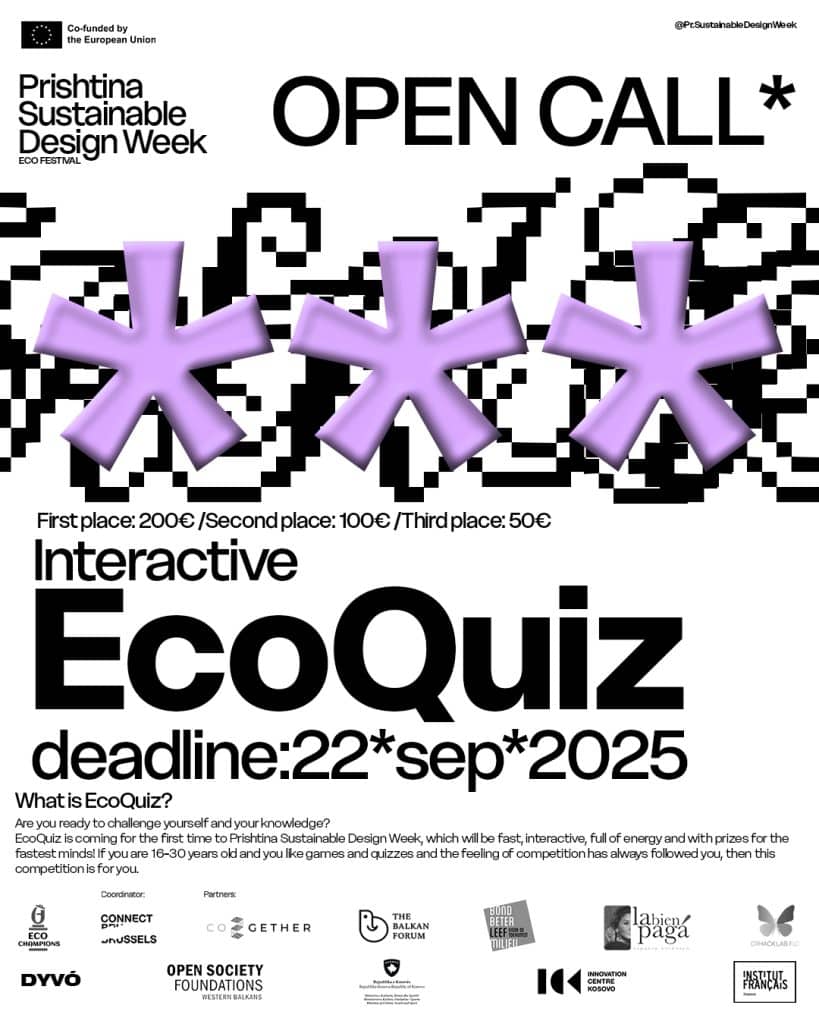
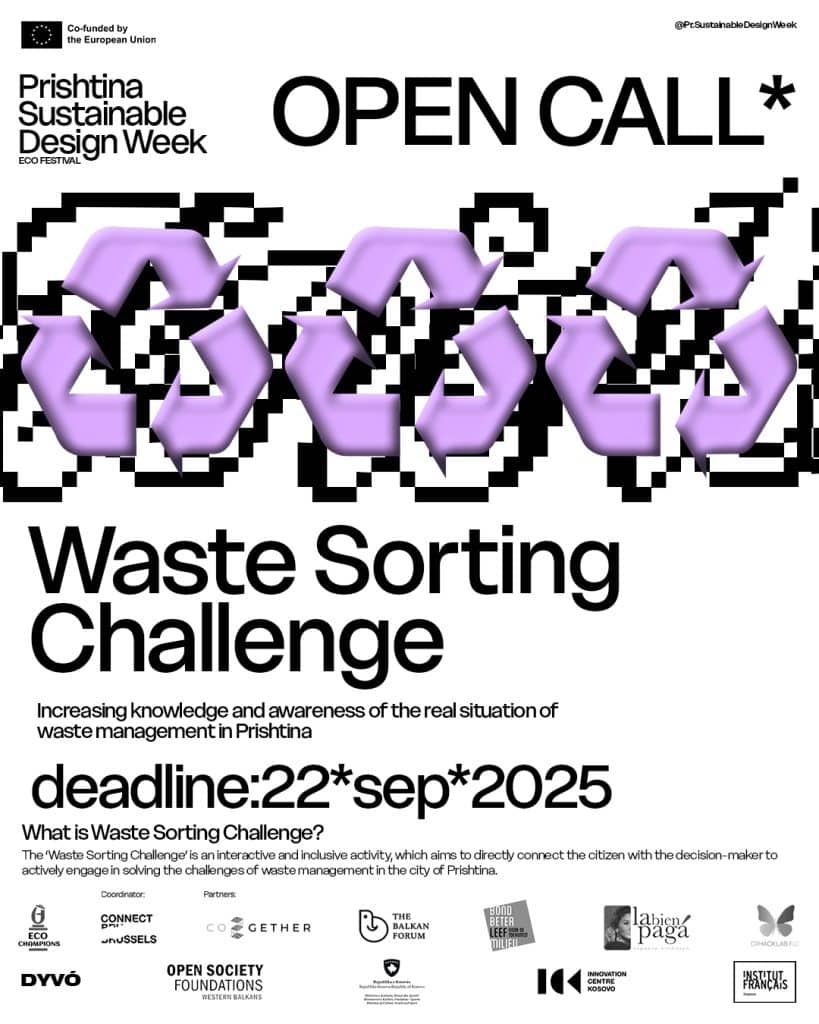
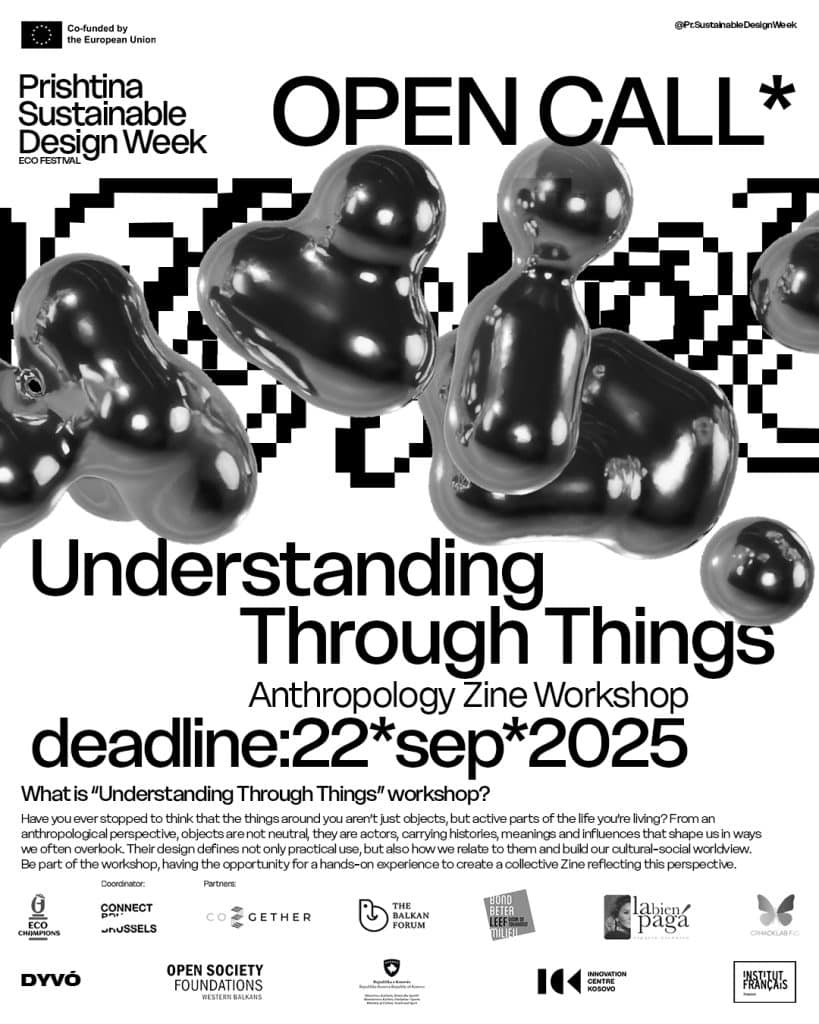
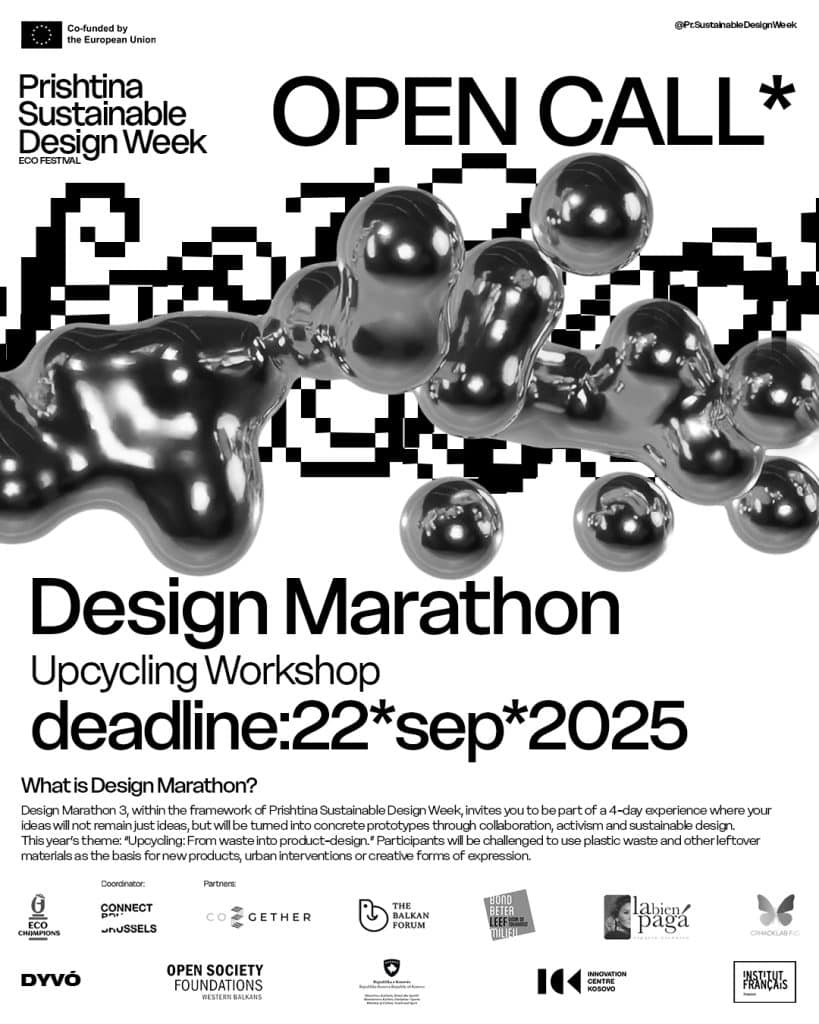
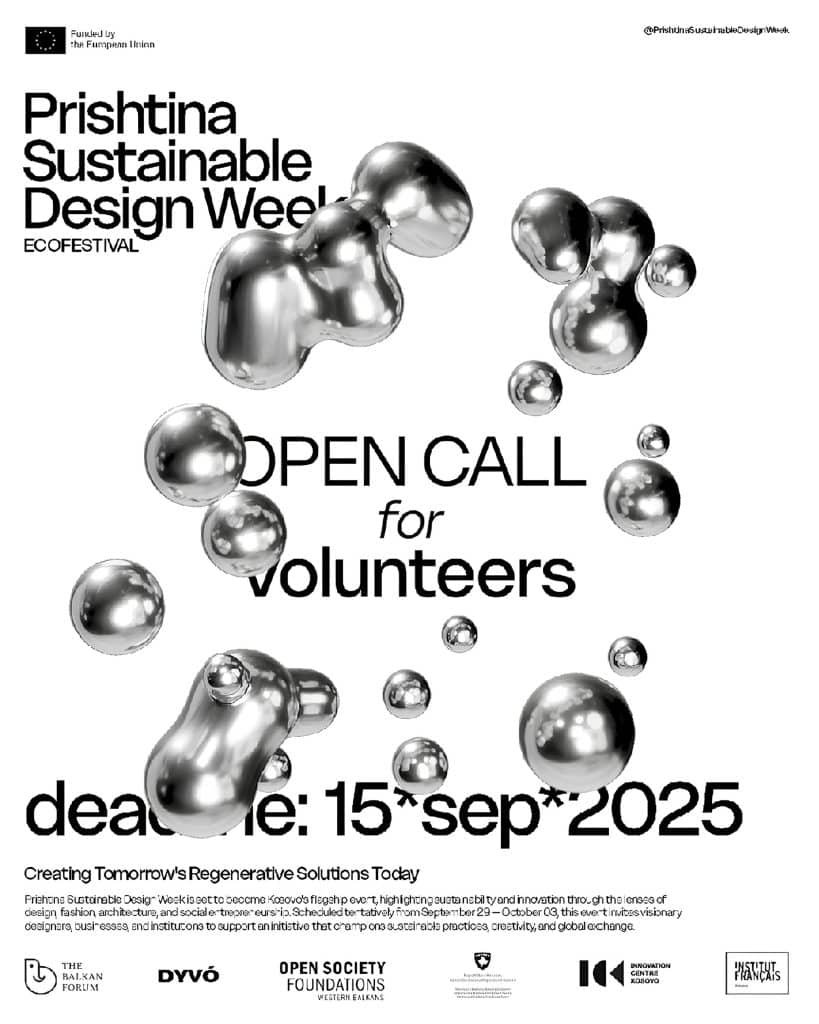
- During the Festival – Practice & Social Reinforcement: The city became a living laboratory. Through the Upcycling Design Marathon, Waste Sorting Challenge, and Interactive Eco Quiz, participants translated knowledge into hands-on action, guided by mentors, facilitators, and local experts serving as “eco-coaches.”
- After the Festival – Reflection & Long-Term Engagement: Digital surveys, QR feedback, and follow-ups with schools, universities, and partners will serve as useful input that will help to transform short-term engagement into long-term motivation, as many pledged to continue eco-creative practices in communities and curricula in future.
Key Activities
Upcycling Workshops (Design Marathon) – Creativity Meets Sustainability
49 participants (40 women, 9 men)
A four-day design sprint where designers, students, and innovators transformed discarded materials into functional prototypes guided by circular economy principles.
- Day 1: Vision by DYVÓ; lecture by Sytrime Dervisholli (circular economy); field trip to Rec-Kos Metals Recycling Company.
- Day 2: Problem statements; lecture by Valerio Perna (Italy) on design thinking and sustainability; concept development and feedback.
- Day 3: Prototyping with Gezim Ramizi (DYVO Lab) and mentors; iteration and refinement.
- Day 4: Finalization, installation, and public exhibition. The Final Exhibition gathered a total of 44 participants, including 29 women and 15 men, who attended the closing event to celebrate the creative outcomes and sustainable innovations developed during the Design Marathon.
Outcome: A collective act of re-imagining the future, showing how waste becomes value and how design drives environmental change.
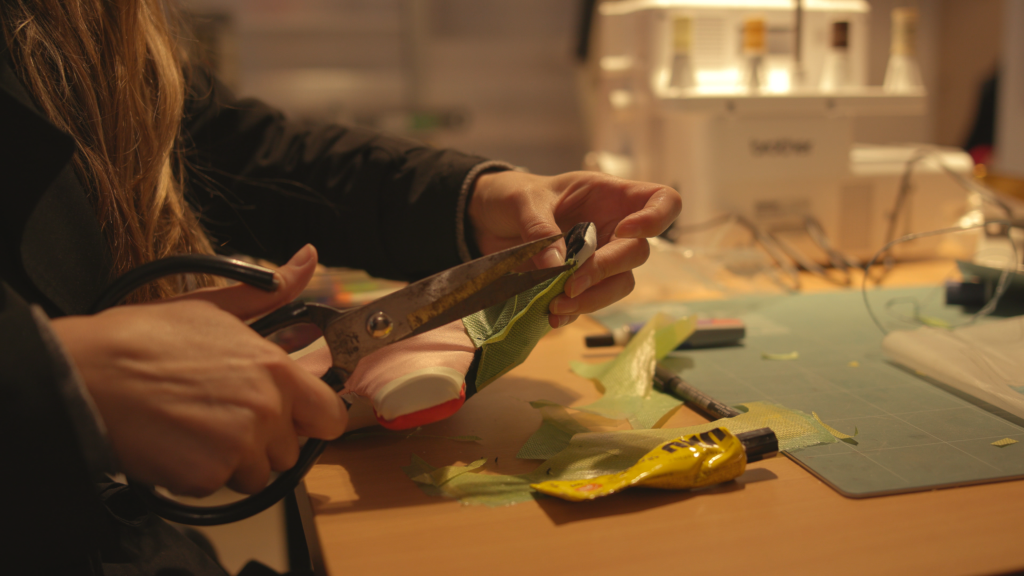
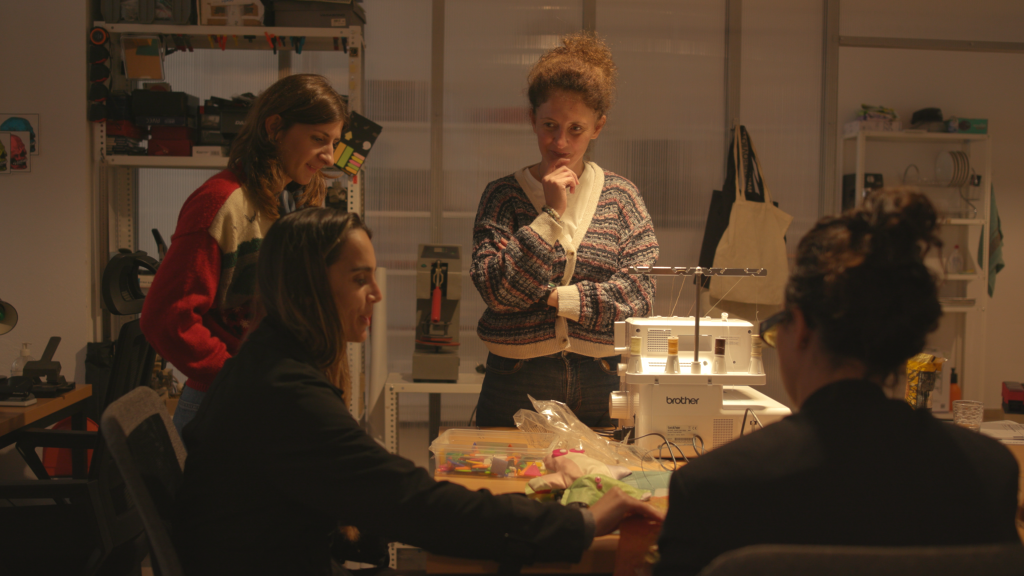
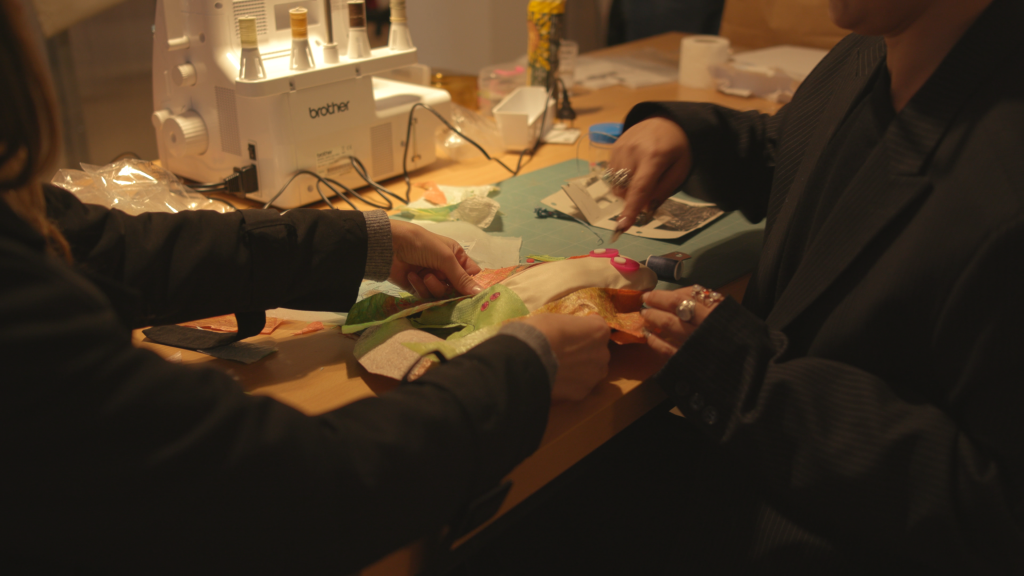
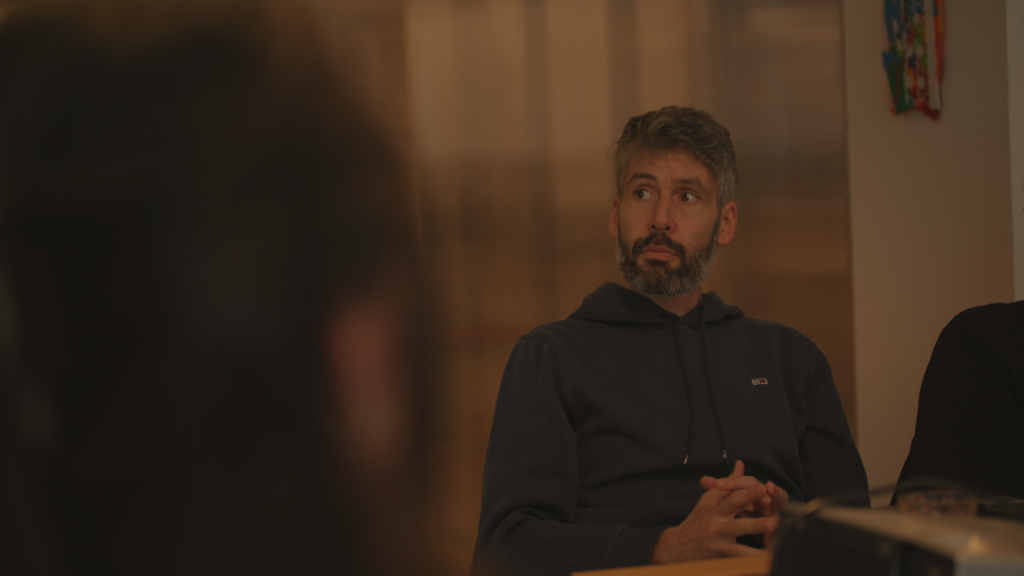

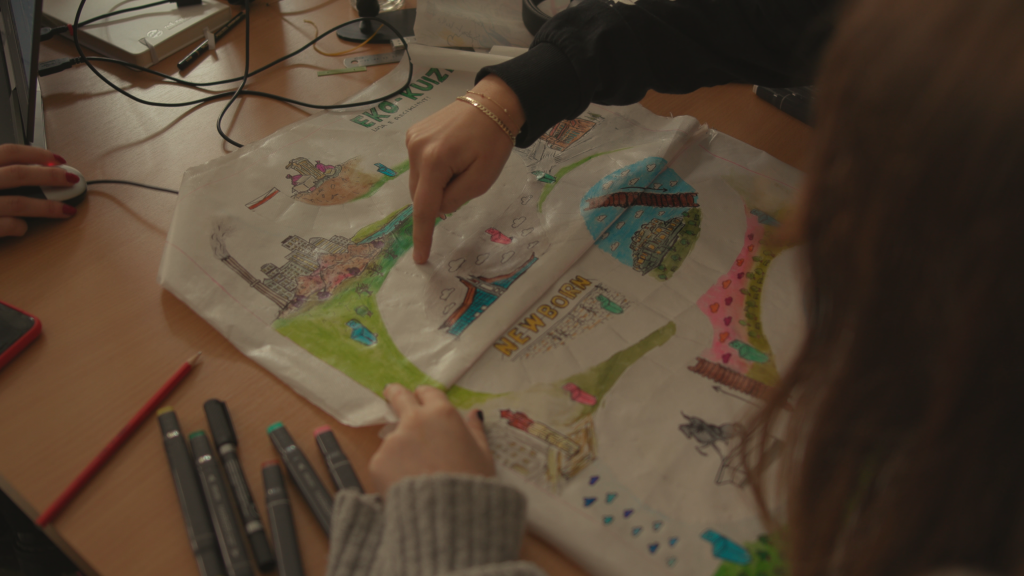
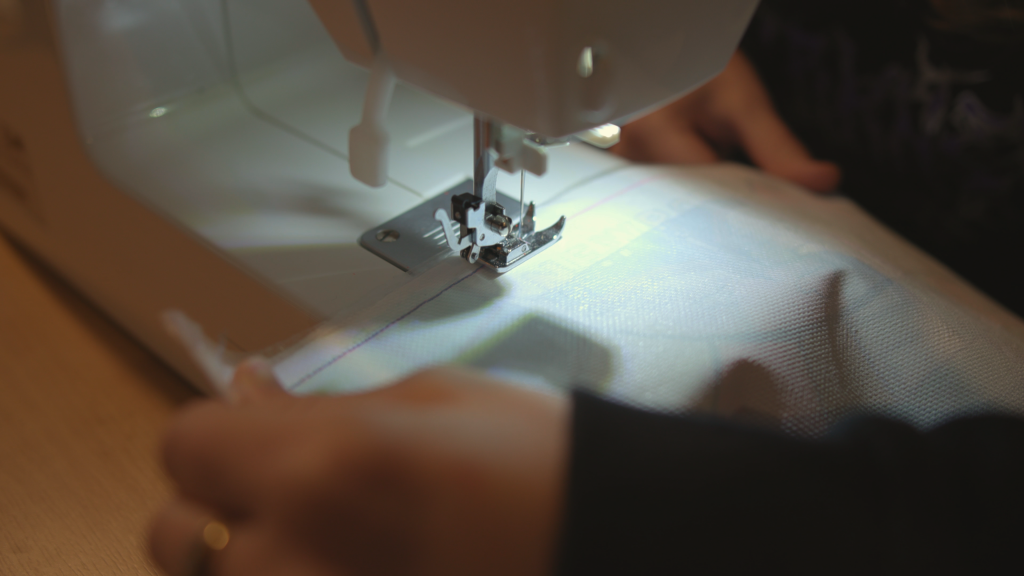
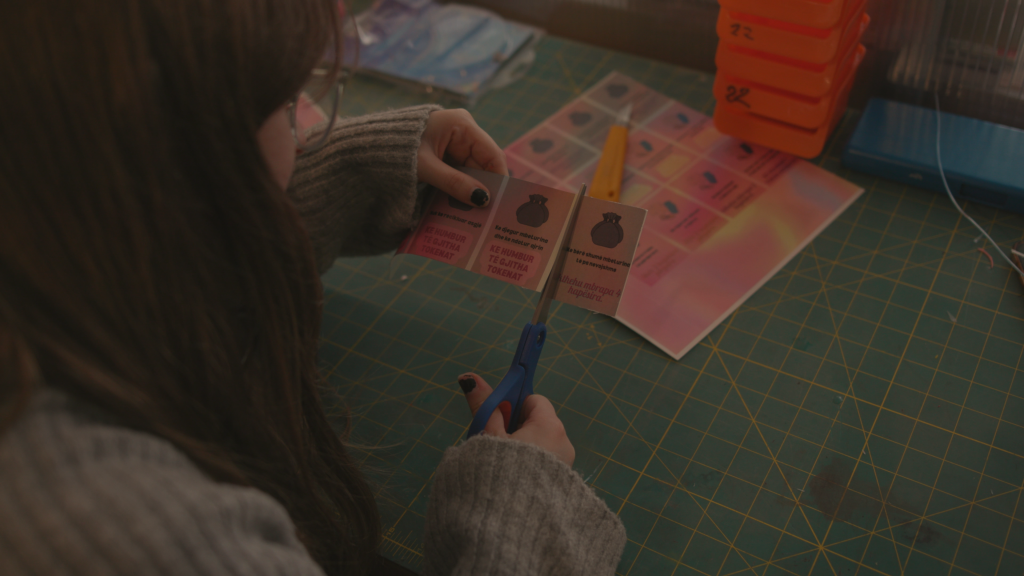
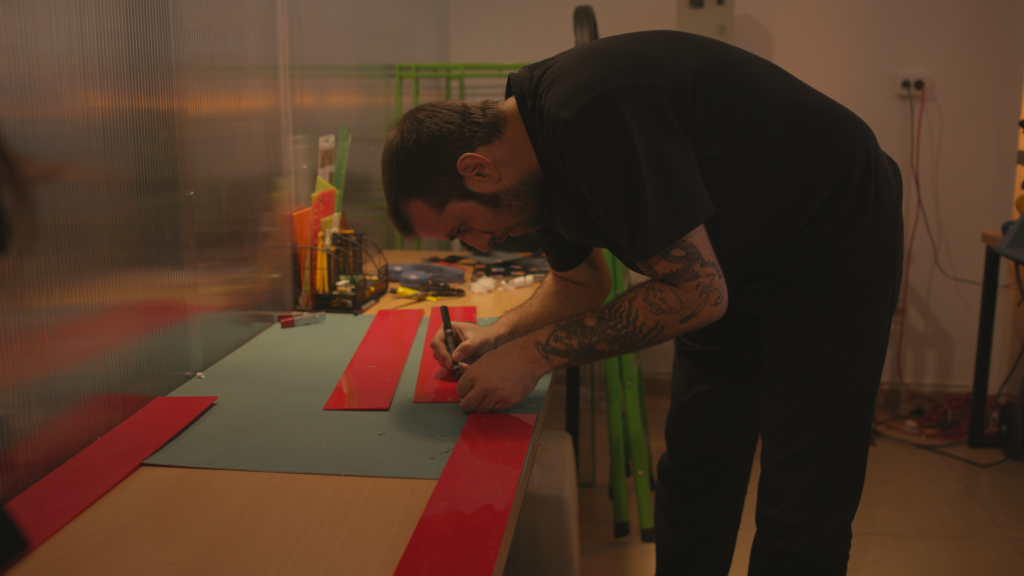

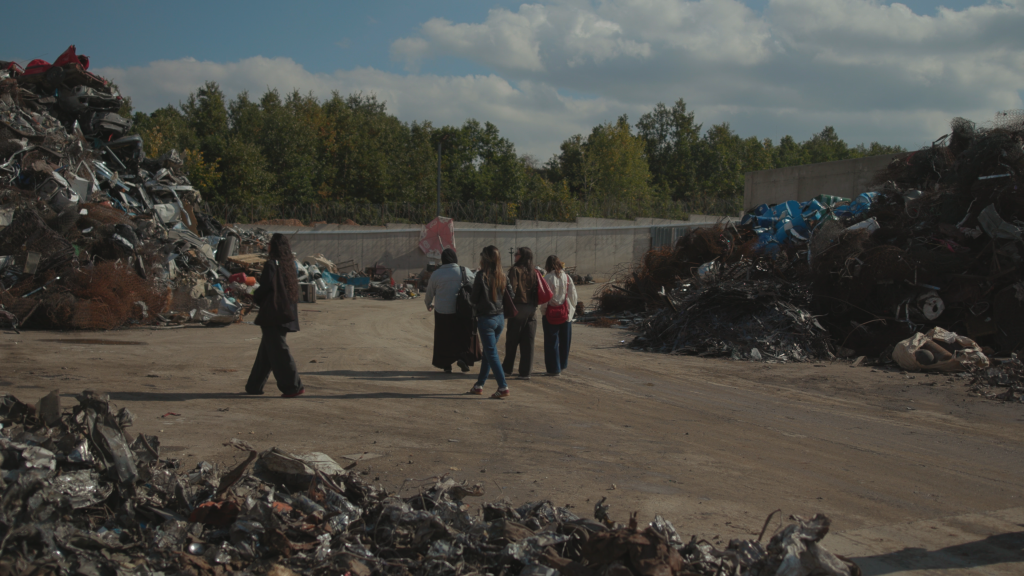
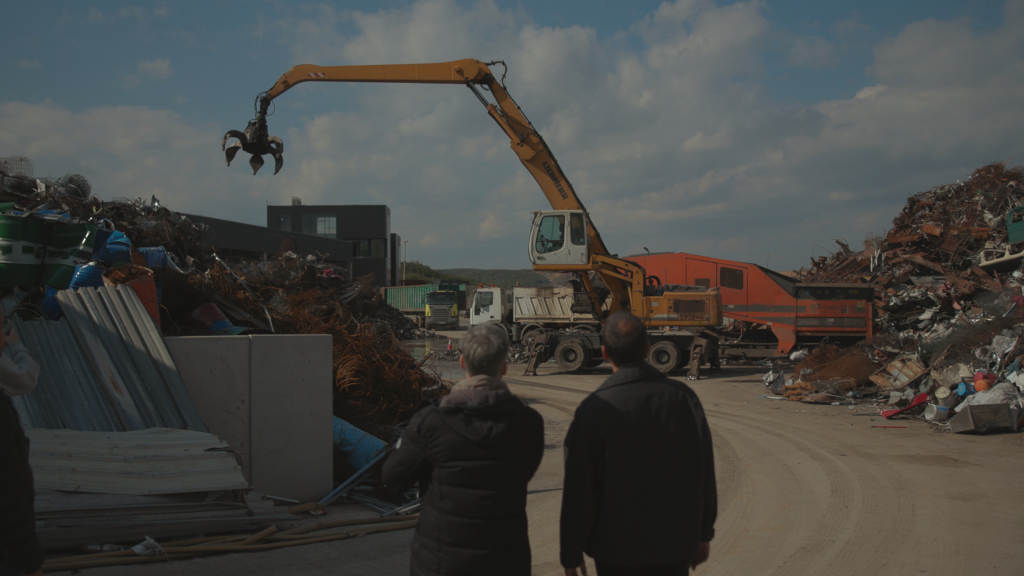
Anthropology Workshop – Understanding Through Things
Led by anthropologist Zanita Halimi, this reflective series used everyday objects to explore relationships, memory, identity, and sustainability. Through observation, dialogue, drawing, and hands-on work, participants co-created a collective zin, presented during the final exhibition, bridging anthropology, design, and civic engagement in a lasting artifact.
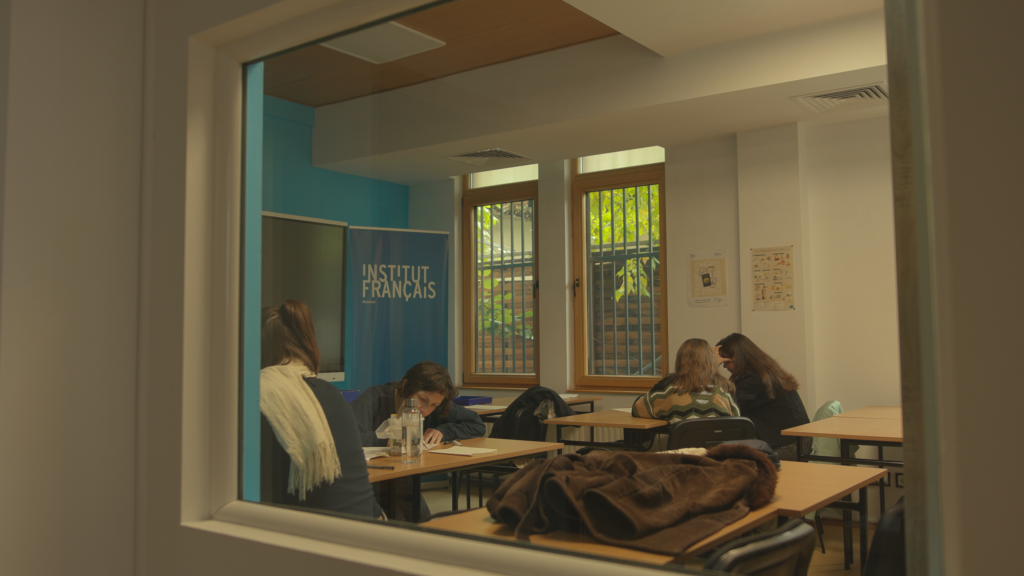
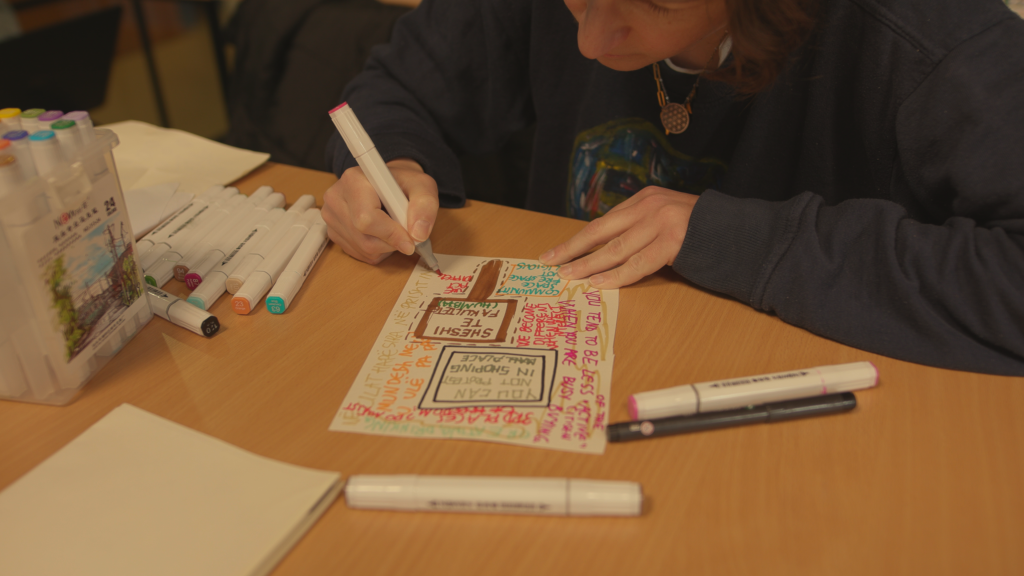
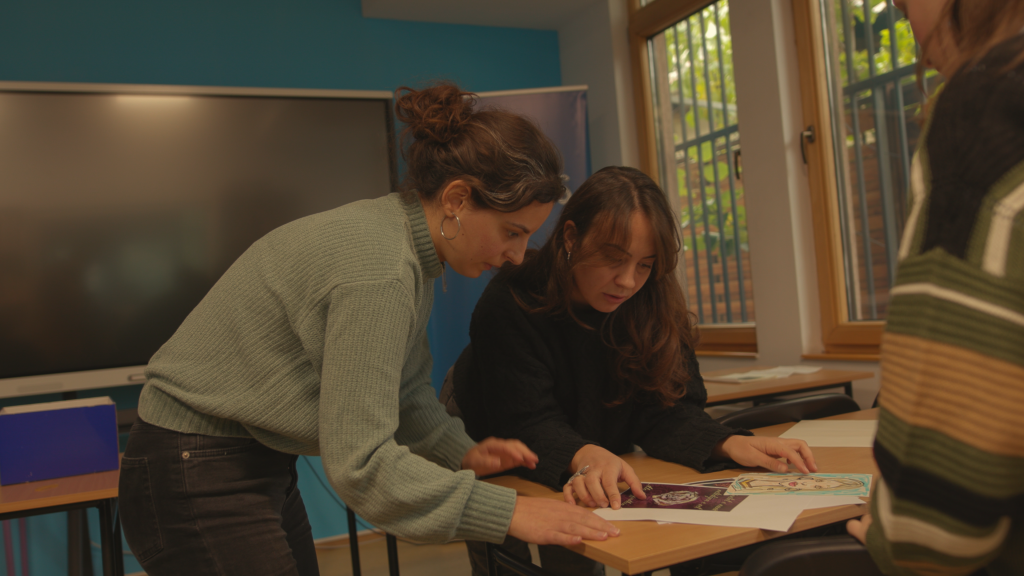
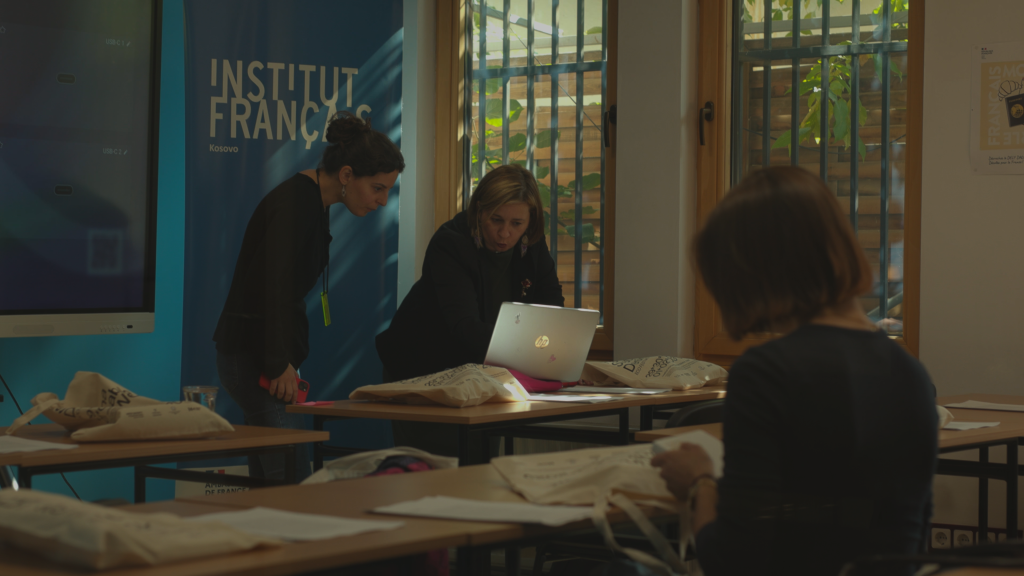
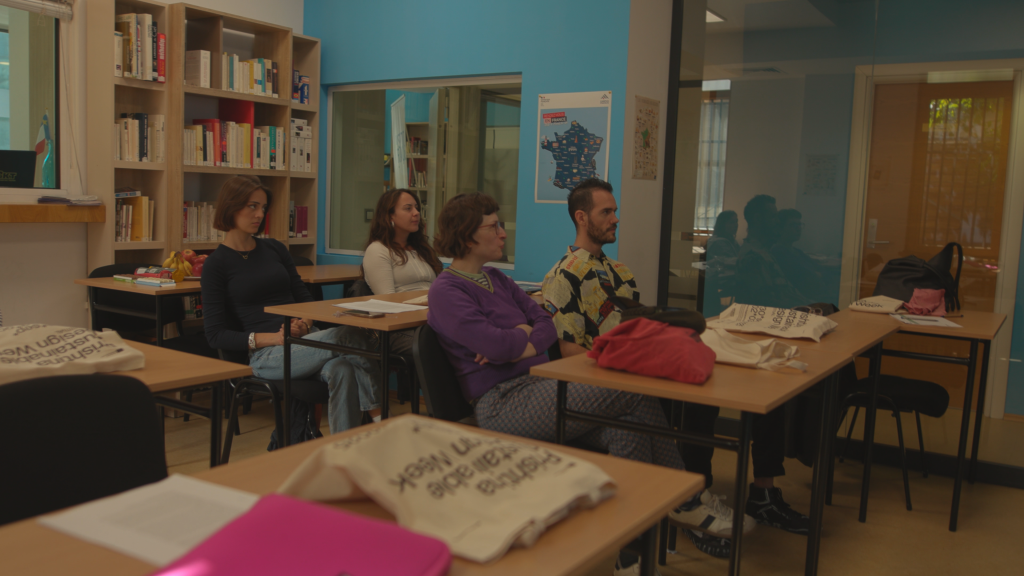
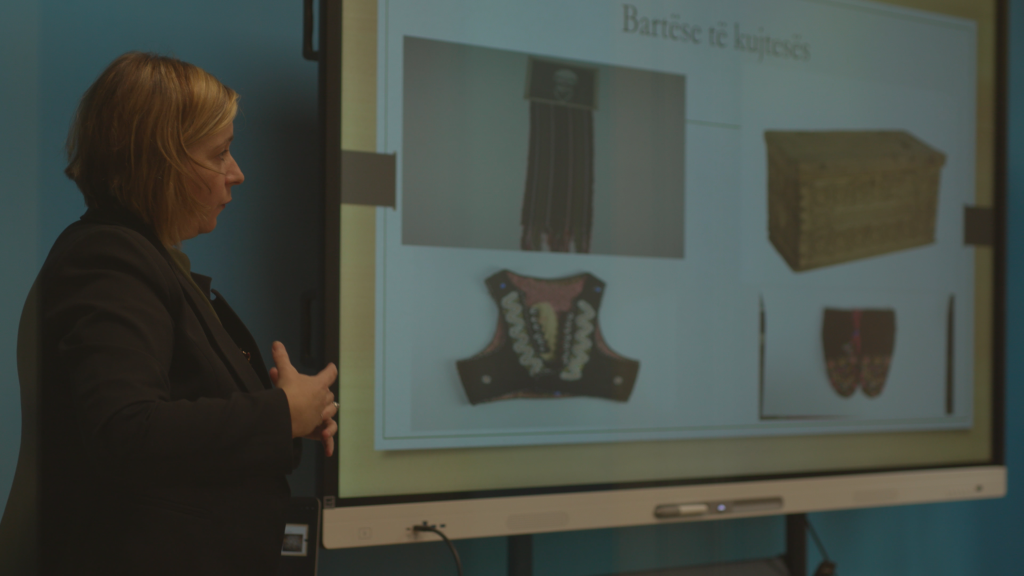
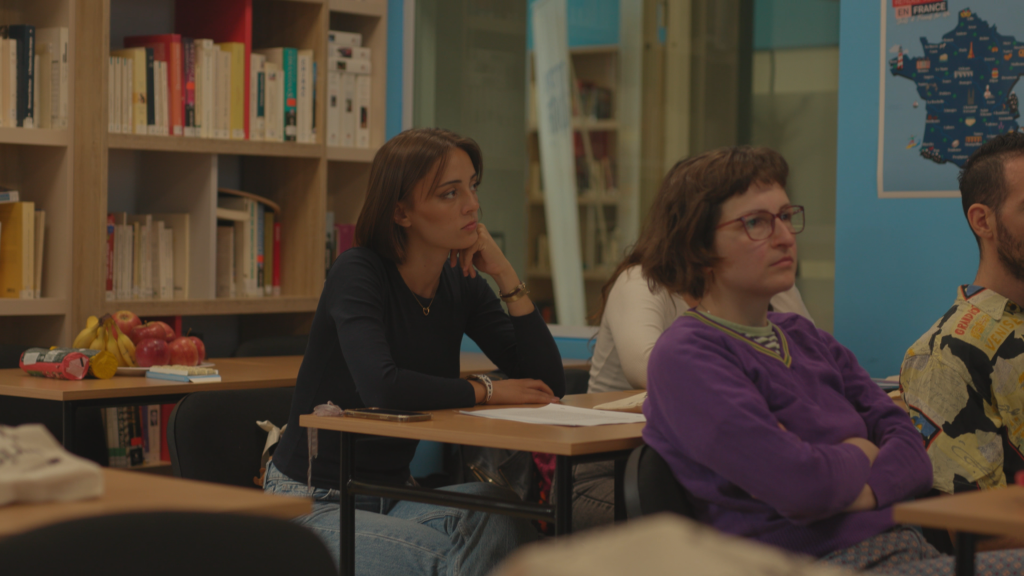
Interactive Eco Quiz – Learning Through Play
Venue: Innovation Centre Kosovo (ICK)
18 participants (8 women, 10 men)
Participants received an information package on Kosovo’s laws, regulations, and strategic policies for waste management and environmental protection. Quiz questions drew directly from these materials, turning policy literacy into an engaging, inclusive, team-based experience.
Integrity & impact: Transparent scoring, three symbolic prizes, and strong peer-to-peer motivation to share knowledge with families and communities.
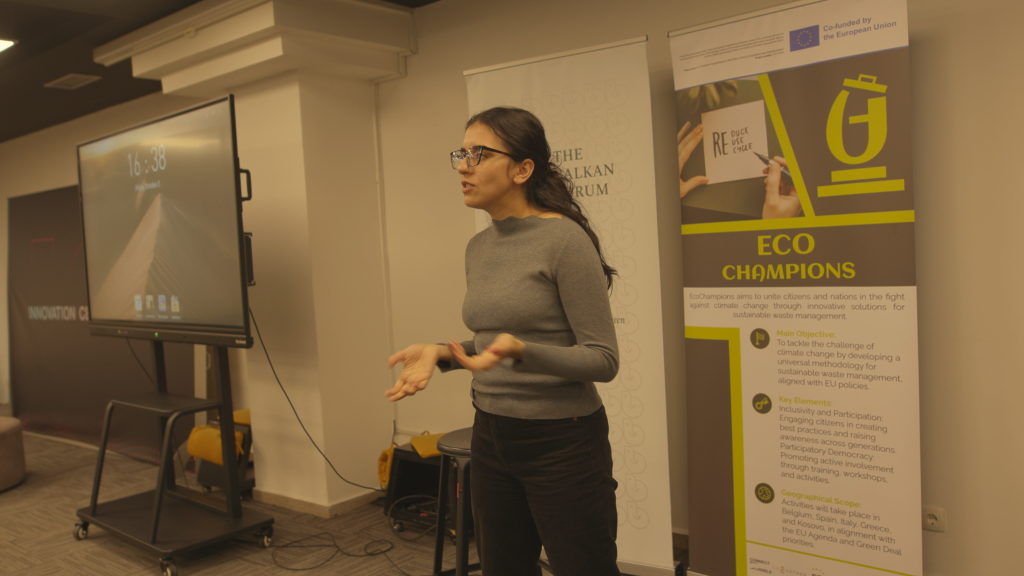
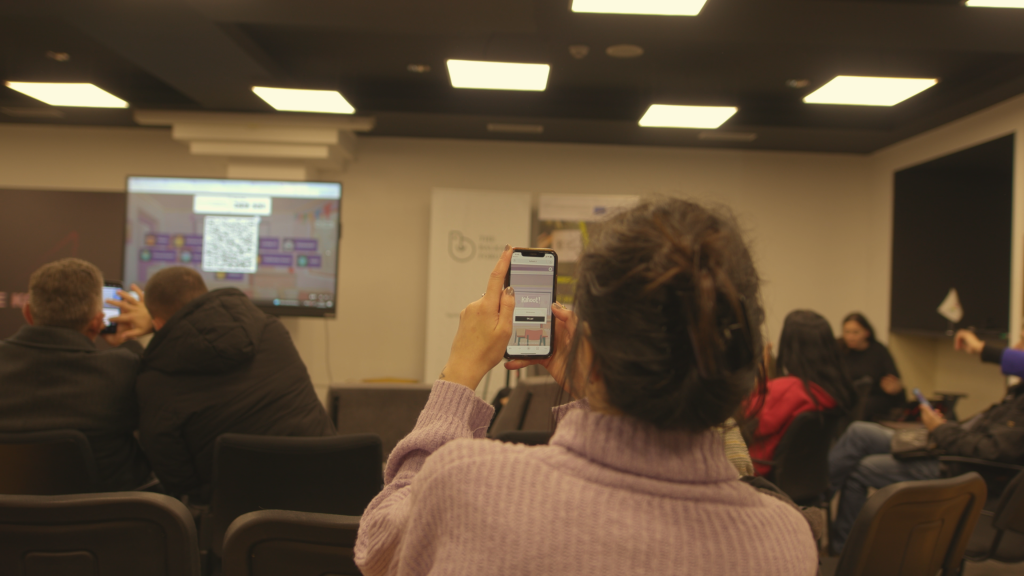
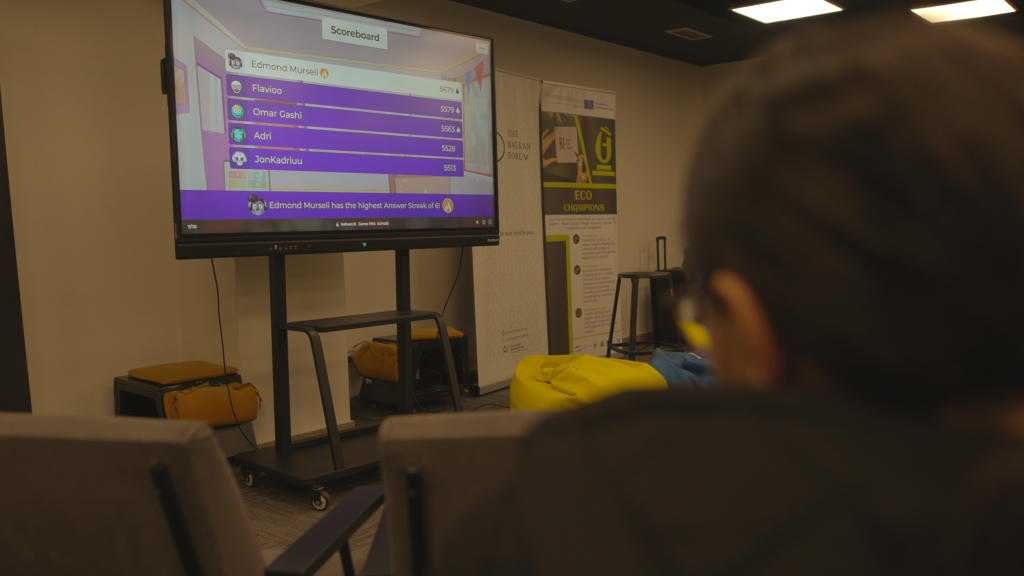
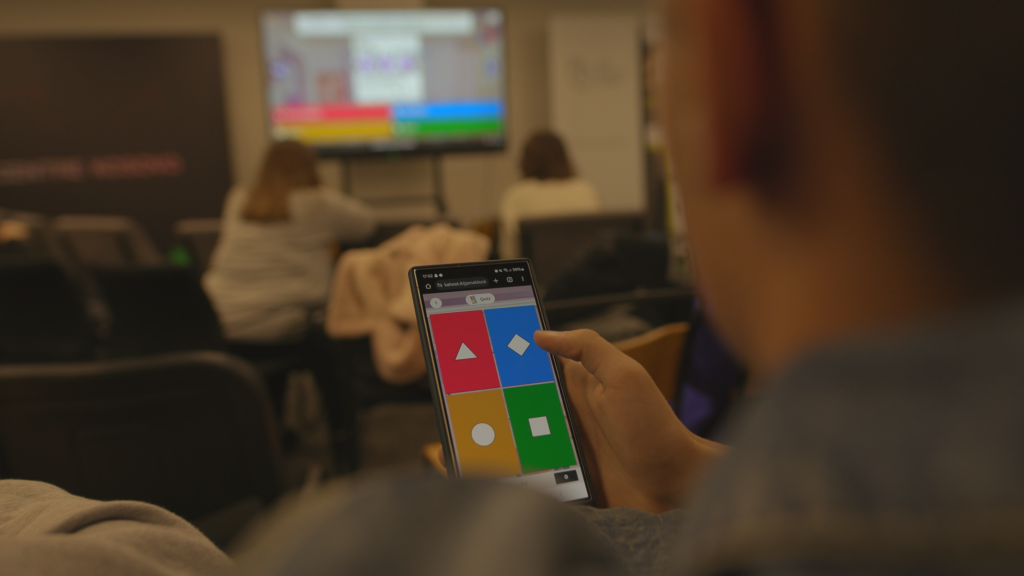
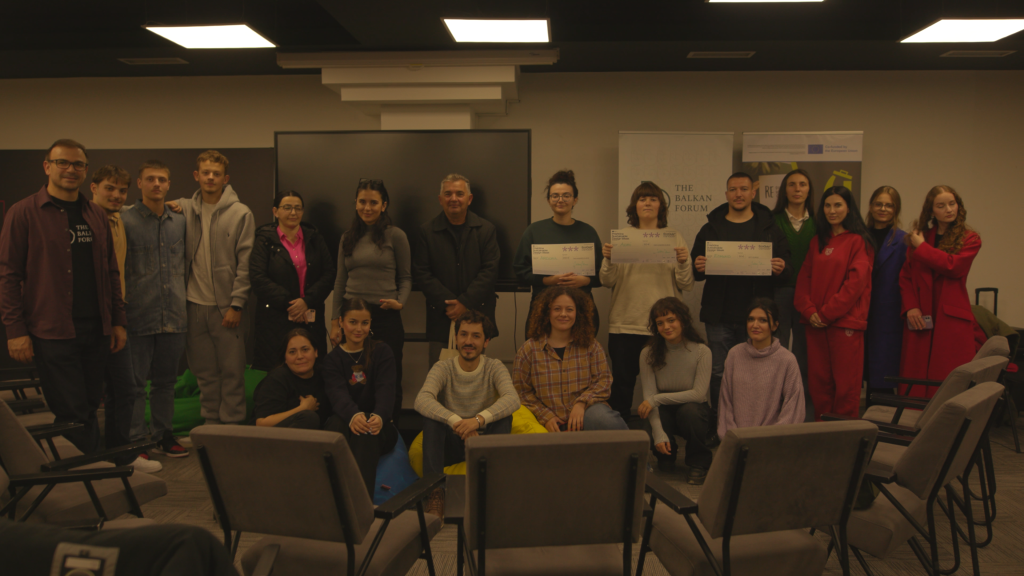
Waste Sorting Challenge – From Awareness to Action
14 participants (9 women, 5 men)
- Interactive discussion with Public Services of the Municipality of Prishtina on urban waste challenges.
- Brainstorming solutions for a cleaner city.
- Neighborhood action: Identifying missing bins; marking locations with eco-friendly beetroot spray and the slogan “When will recycling start?”
- Joint Declaration signed for local and central authorities, urging better waste infrastructure and greener urban planning.
Result: A compelling model of citizen engagement + institutional presence + creative action influencing policy advocacy and tangible urban improvements.
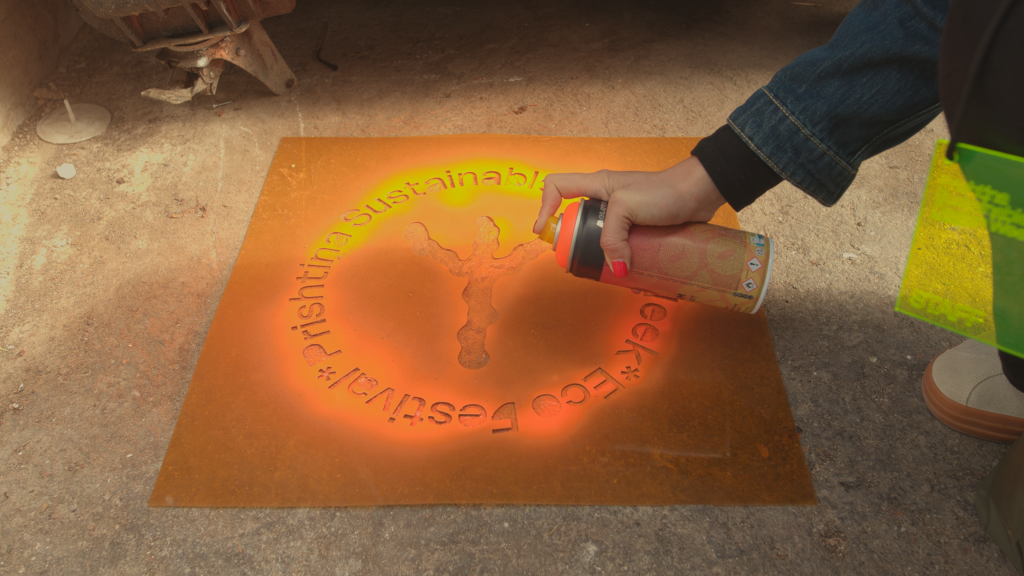
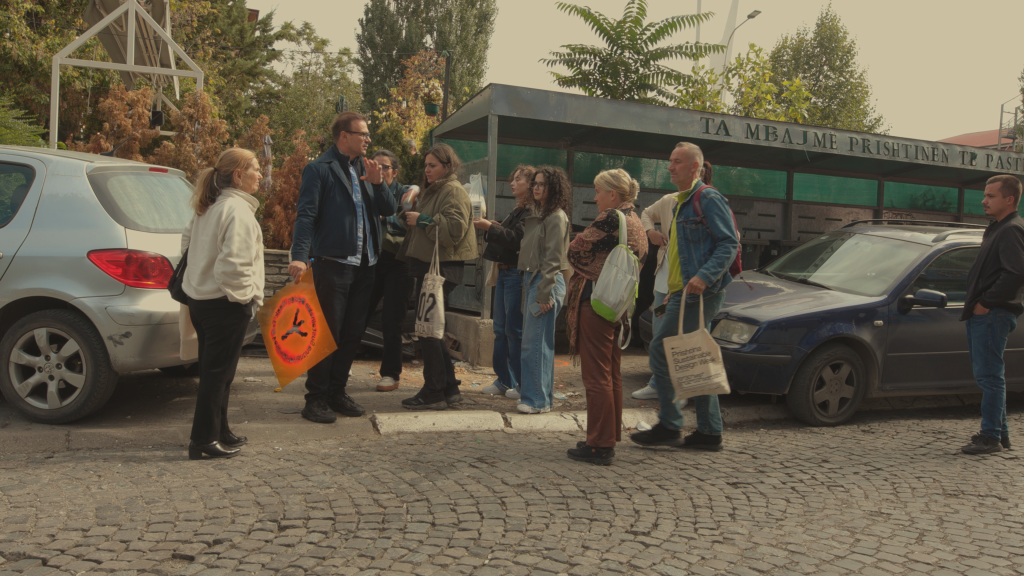
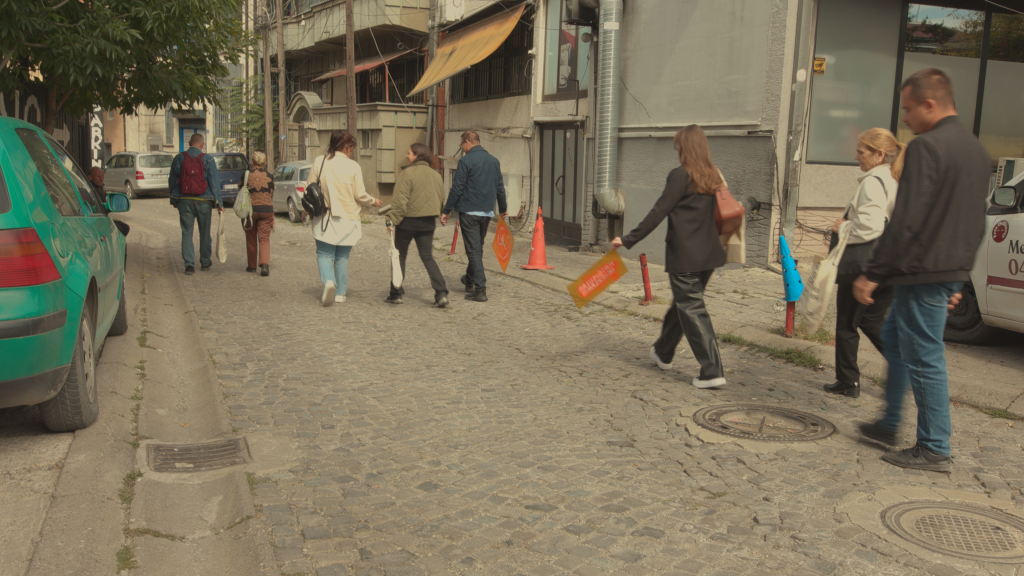
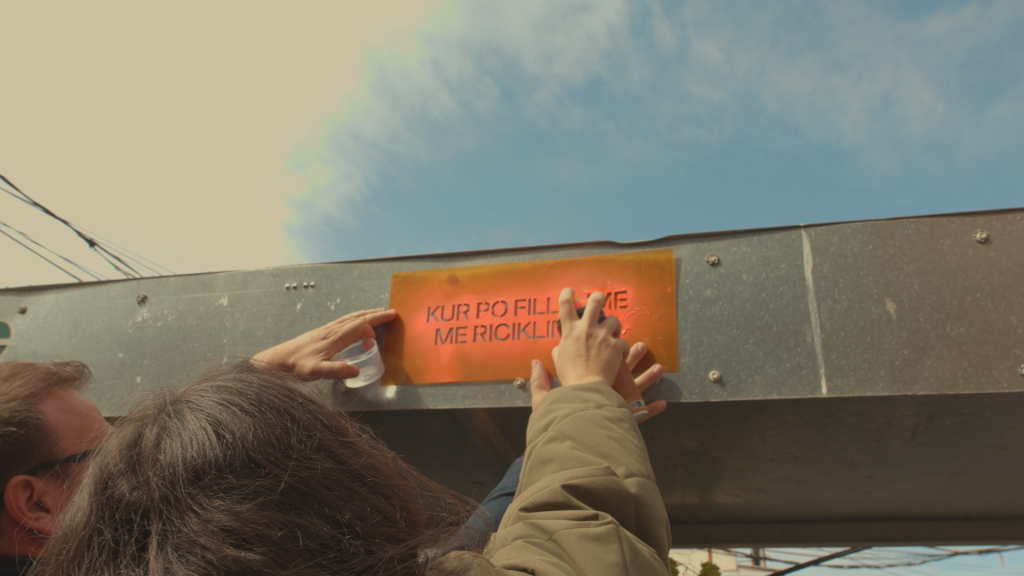
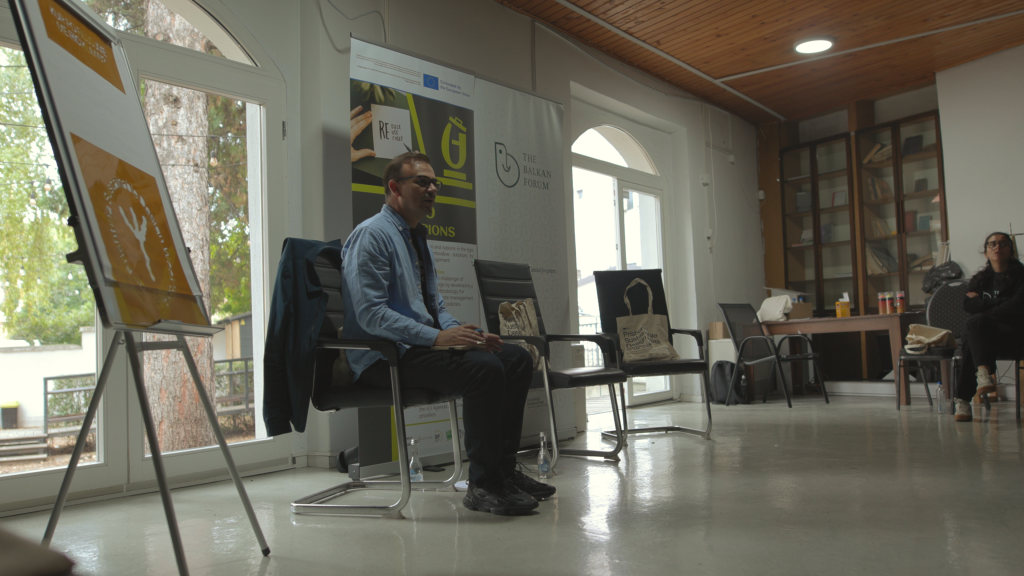
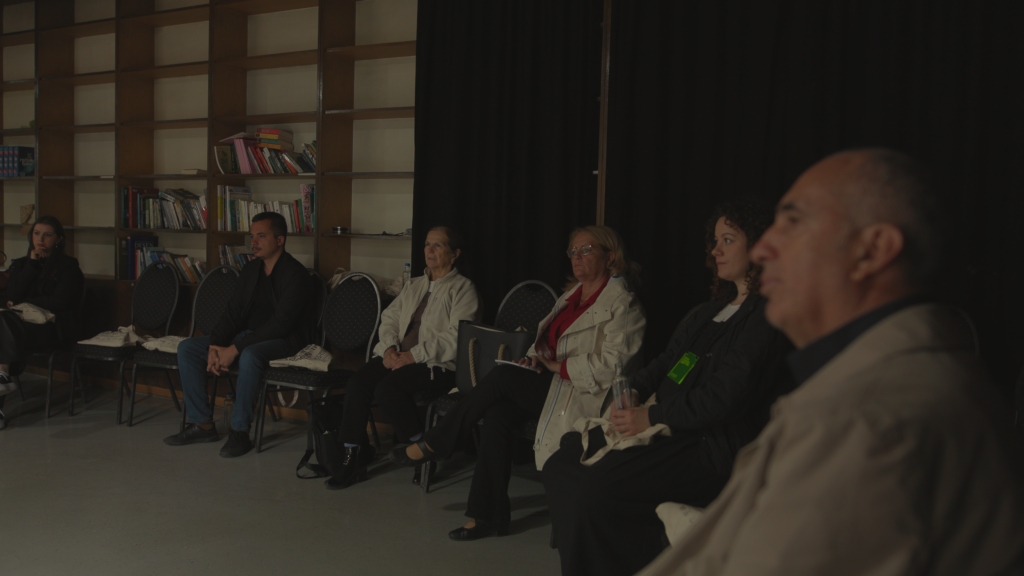
Thematic Conferences at Kino Armata
Four consecutive conferences explored creativity, sustainability, and social transformation—engaging a total of 276 participants (161 women, 115 men):
- Spaces of Possibility (29 Sept) — How creative commons can regenerate urban spaces.
Speakers: Përparim Rama, Nikki Murseli, Maja Lalić, Sonila Abdalli
Participants: 97 (55 women, 42 men) - Creativity as an Act of Repair (30 Sept) — Design ethics and material responsibility.
Speakers: Erzë Dinarama, Samuela Hidri, Zanita Halimi, Ibrahim Beqiri, Ariana Kuqi
Participants: 65 (36 women, 29 men) - Art as an Act of Transformation (1 Oct) — Transparency, emotion, and regeneration in practice.
Speakers: Francesca Pasquali, Driton Selmani, Sislej Xhafa, Behare Bajraktari
Participants: 65 (42 women, 23 men) - Fashion as an Act of Suture (2 Oct) — Women-led sustainable fashion and entrepreneurship.
Speakers: Hana Zeqa, Vlera Cocaj, Katarina Ejdus, Martina Spetlova
Participants: 49 (28 women, 21 men)
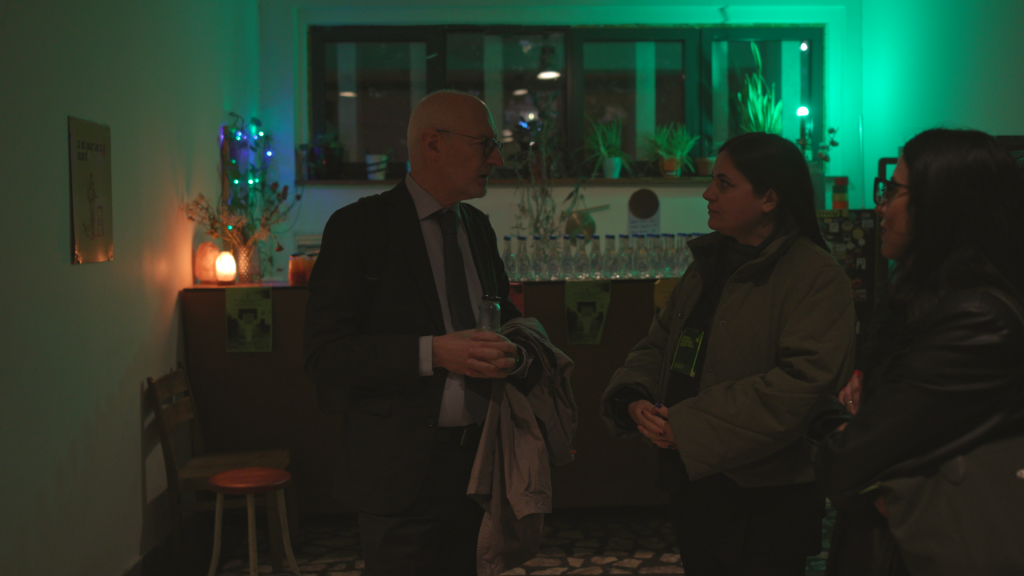
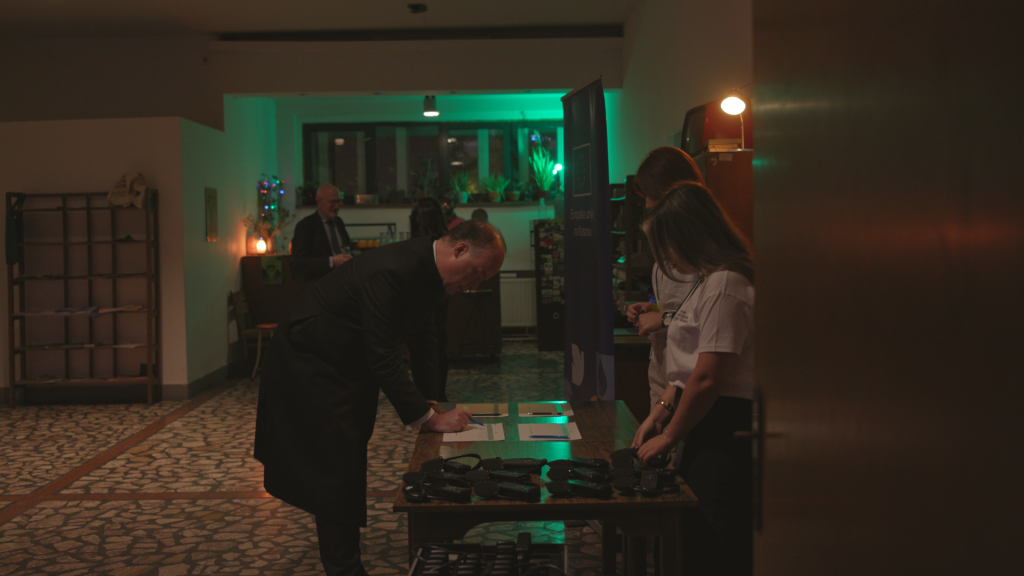
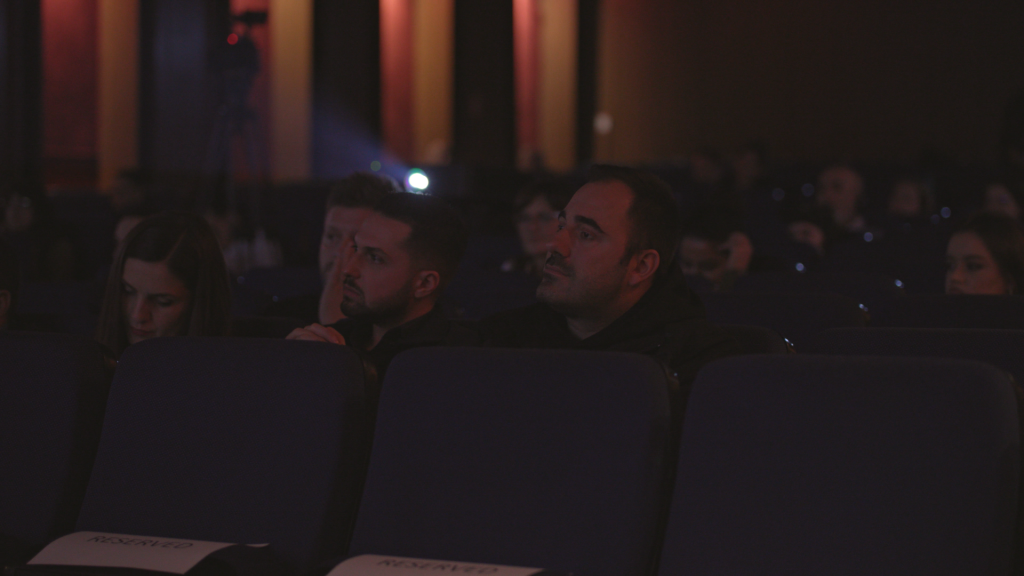
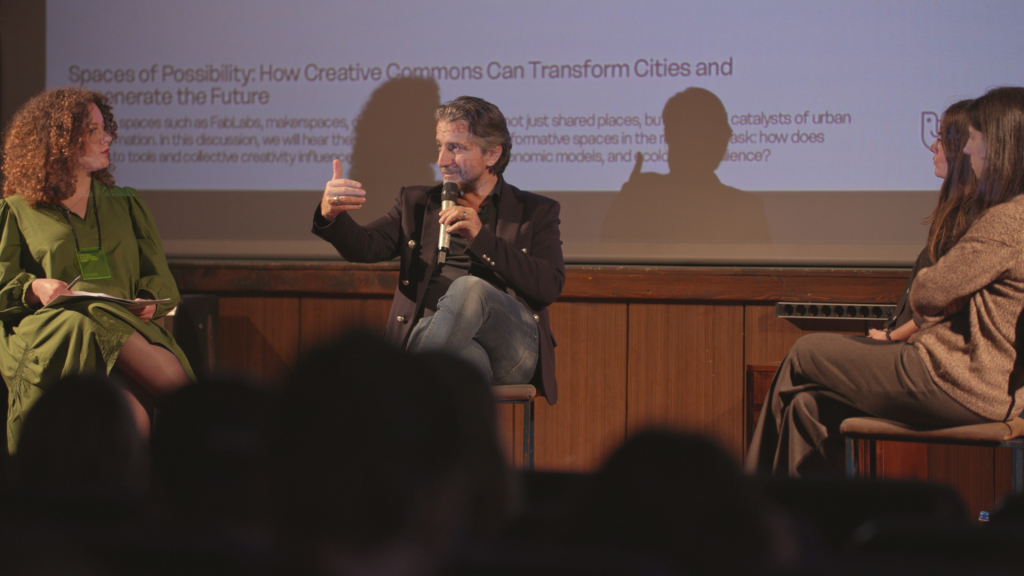
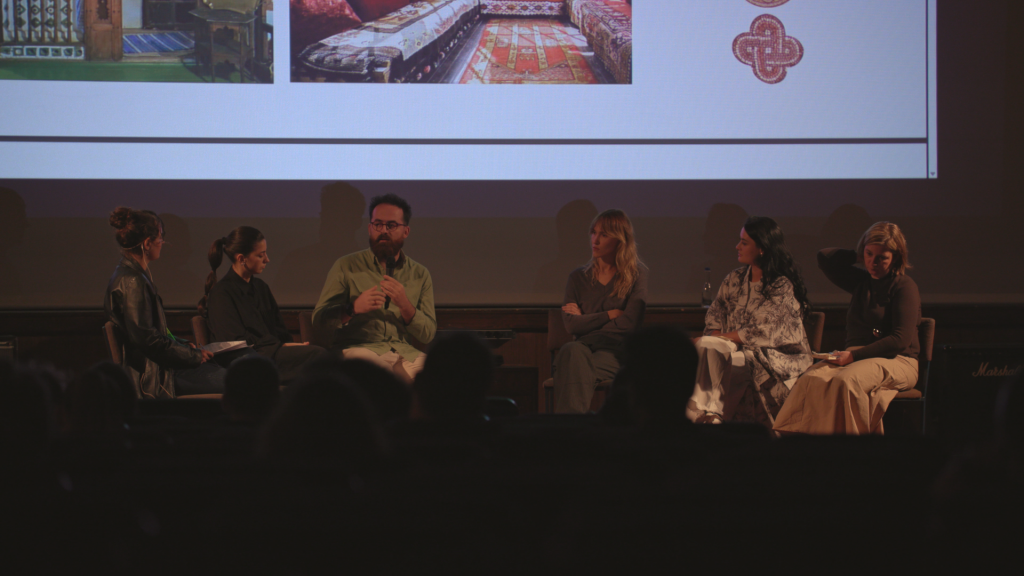
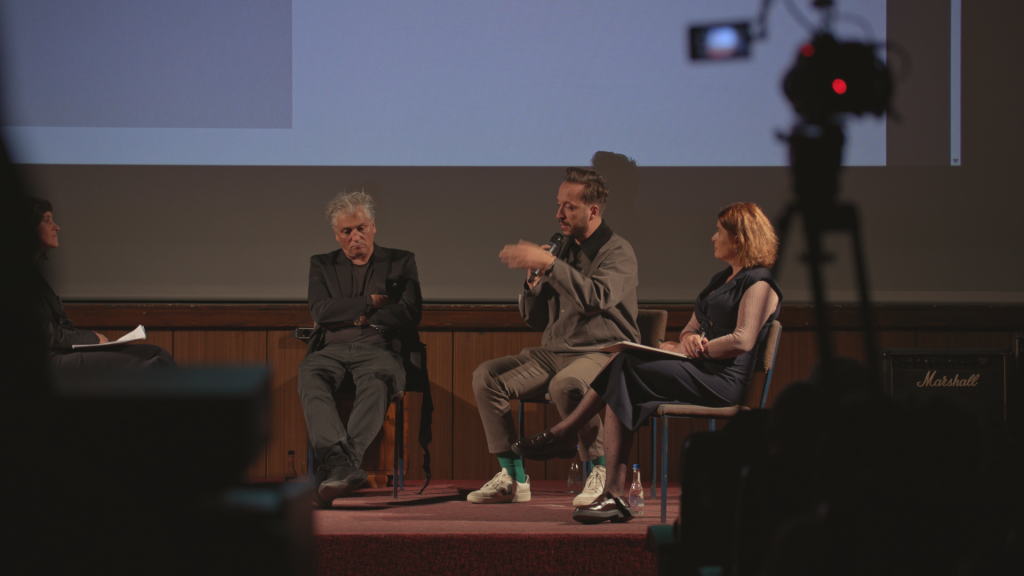
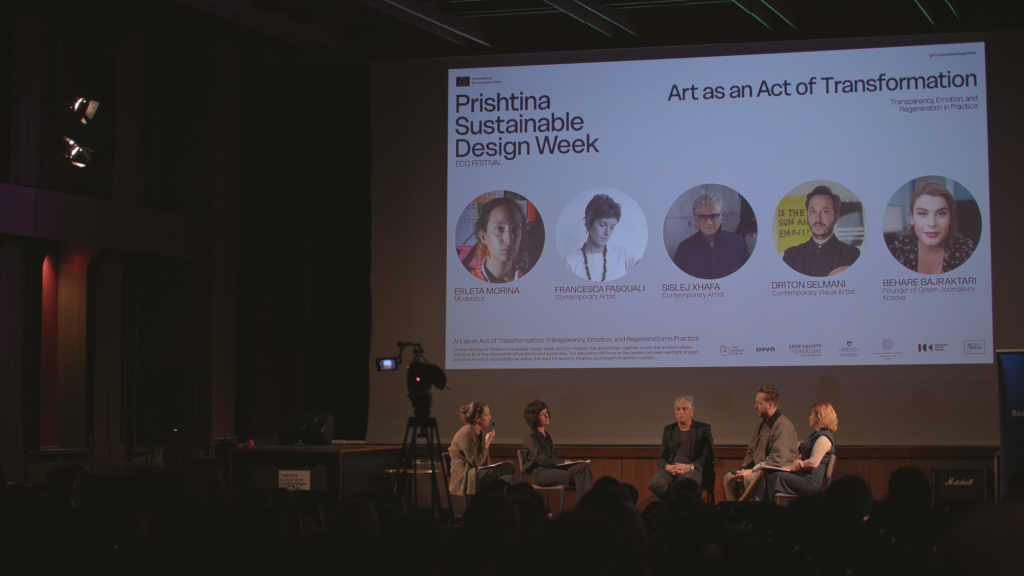
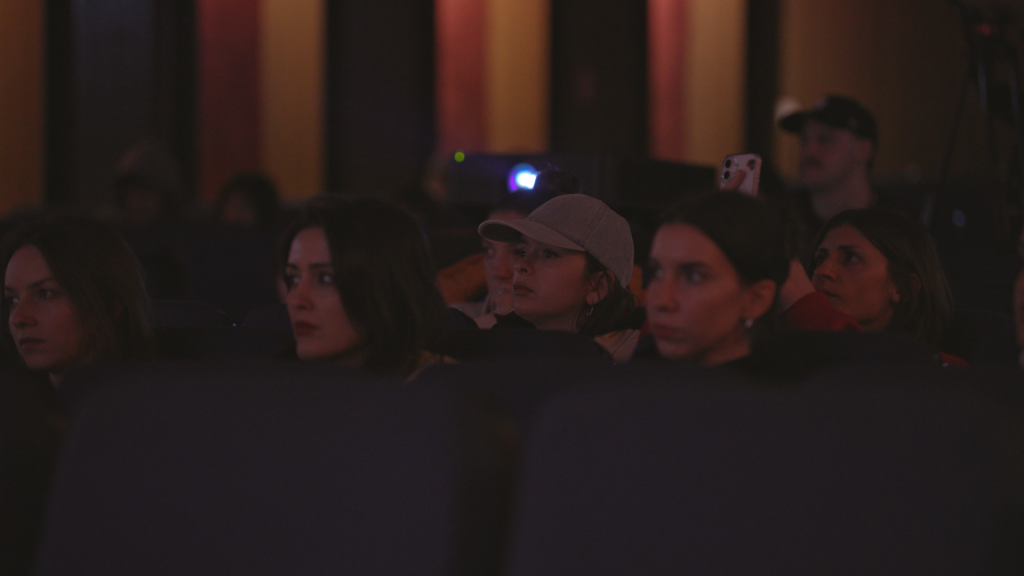
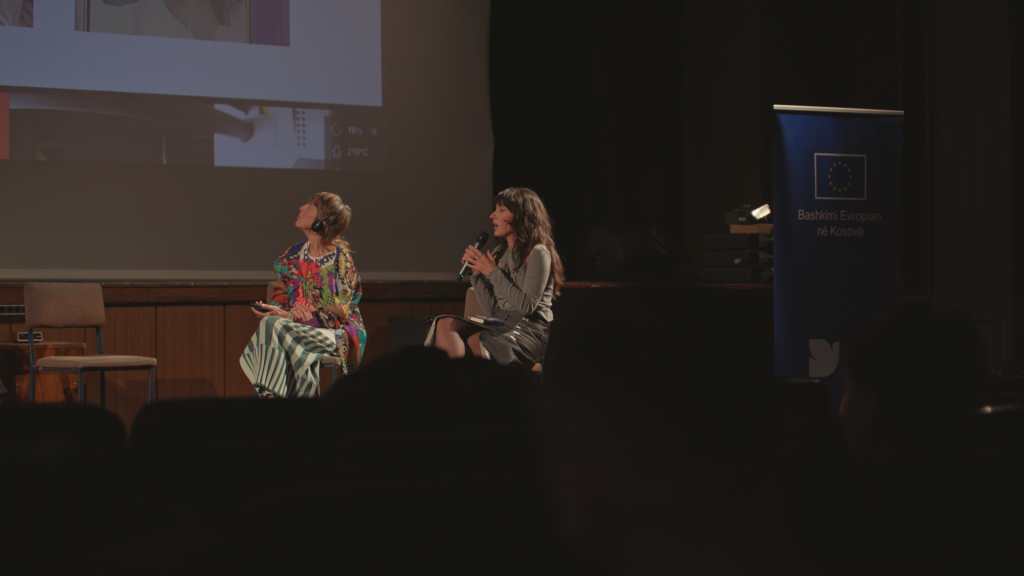
Impact
- 400+ participants engaged across activities
- Intergenerational learning and collaboration throughout
- Strong, practical awareness of waste reduction, circular design, and sustainable living
- Prishtina affirmed as a hub for eco-innovation and participatory democracy, with high visibility via PSDW platforms
Media Coverage
In the lead-up and during the festival, organizers gave 7 interviews across major outlets—KTV – Kohavision, RTK (radio & TV), Koha Ditore, Klan Kosova, and RTV Dukagjini (radio & TV)—afmplifying the message of sustainability and circular economy nationwide.
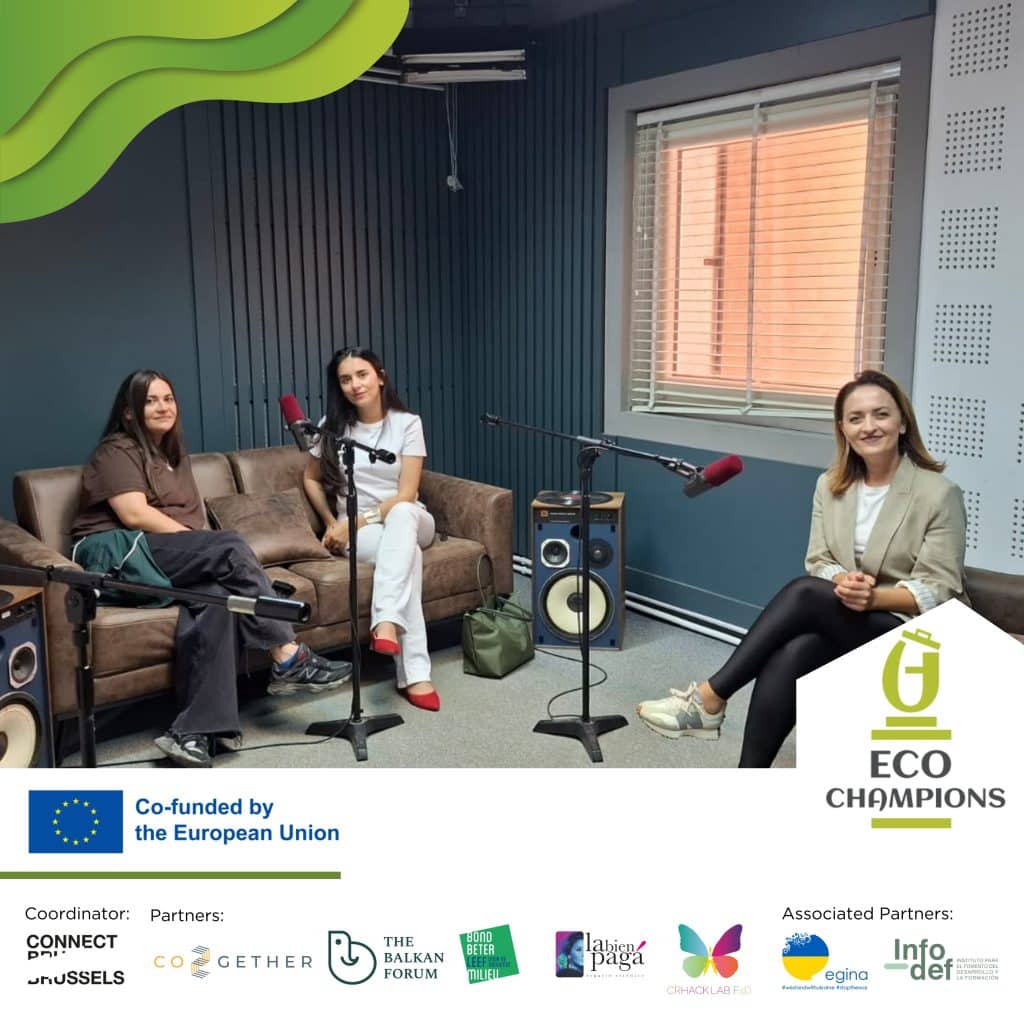
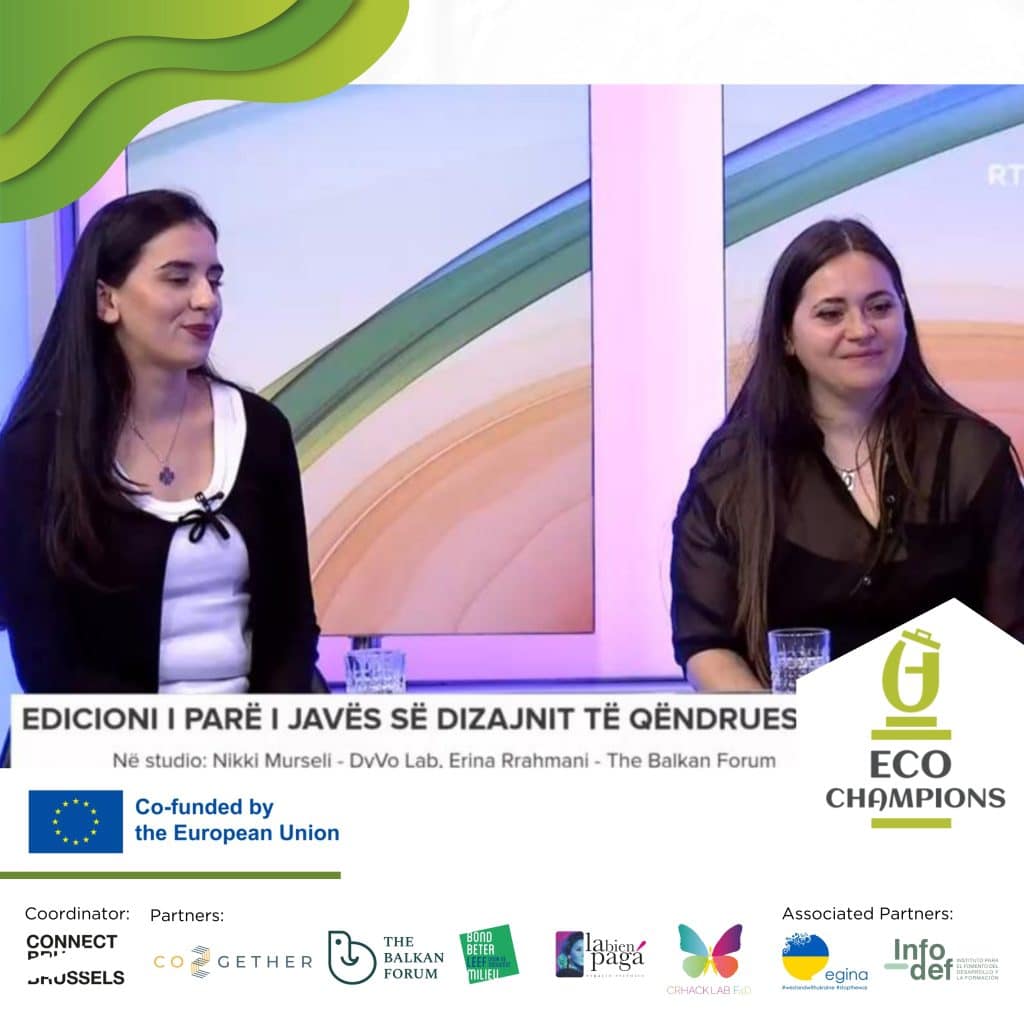
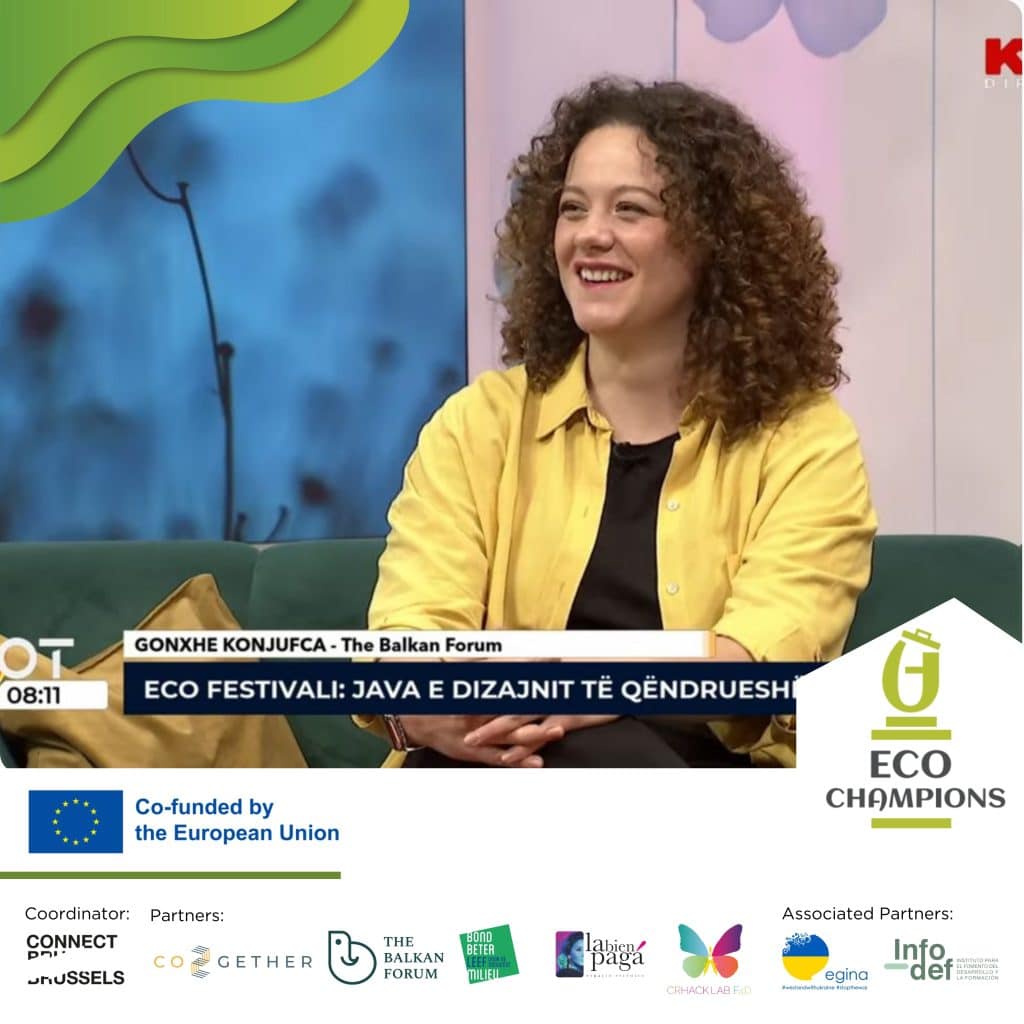
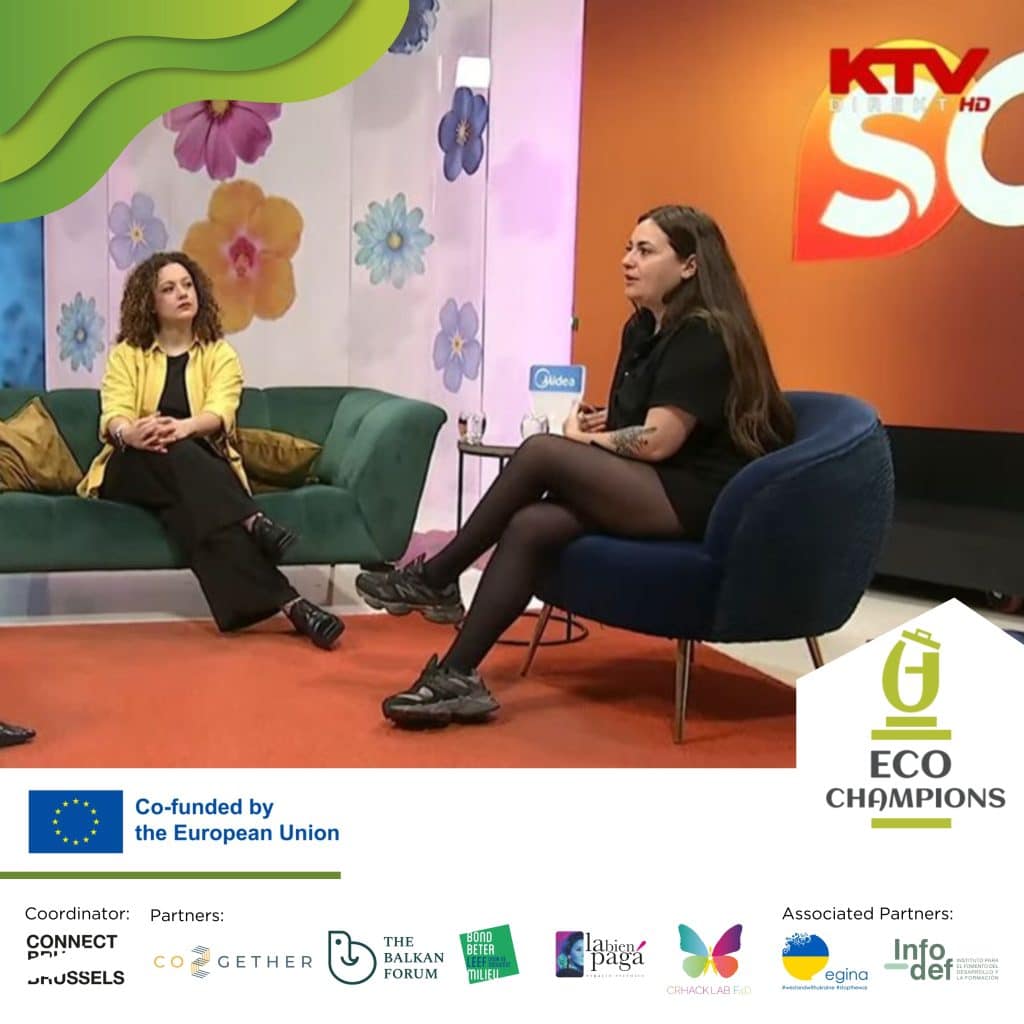
From Awareness to Action
PSDW proved that sustainability is strongest when it becomes part of daily life. The Upcycling Design Marathon, Eco Quiz, and Waste Sorting Challenge turned ideas into hands-on practice, while the Kino Armata conferences created space for open conversation and creative exchange.
What made PSDW unique was its mix of voices, youth, educators, professionals, and older citizens, bridging generations through care, creativity, and shared responsibility. The momentum continues through media coverage, institutional partnerships, and digital follow-ups, moving people from understanding the problem to becoming part of the solution and building a more sustainable Kosovo.
